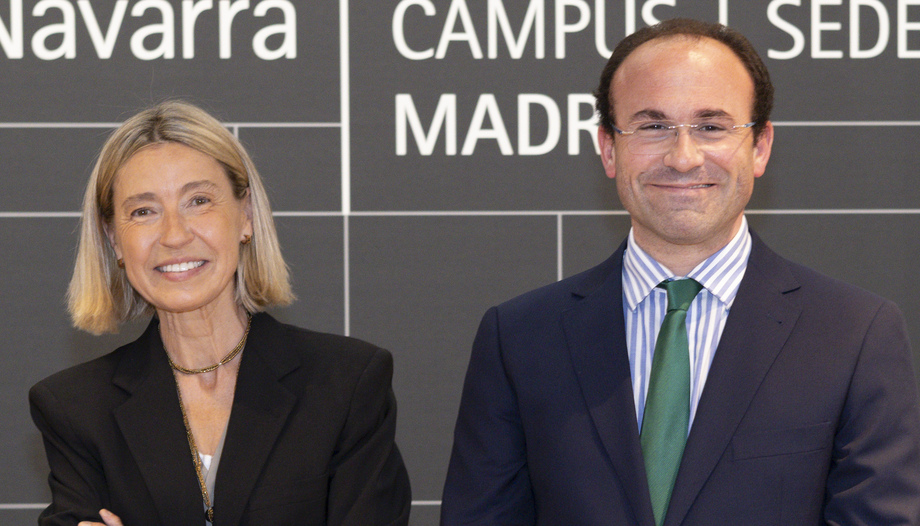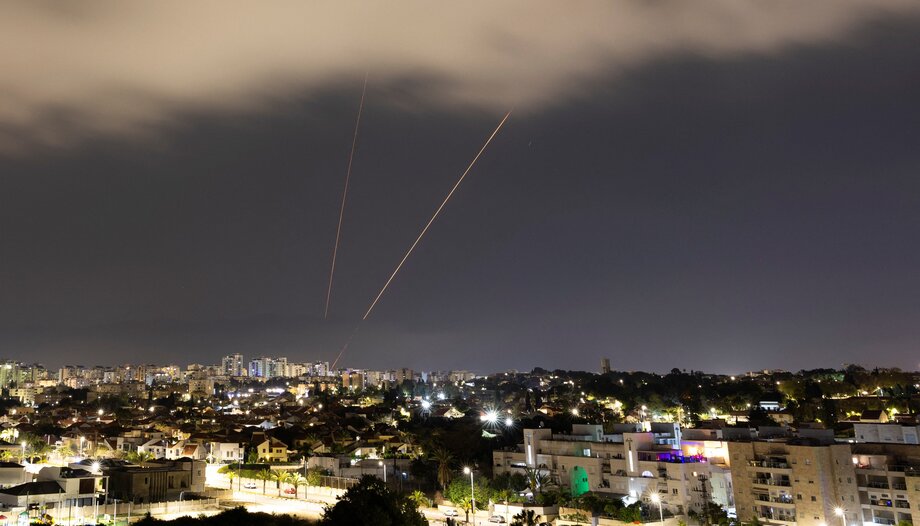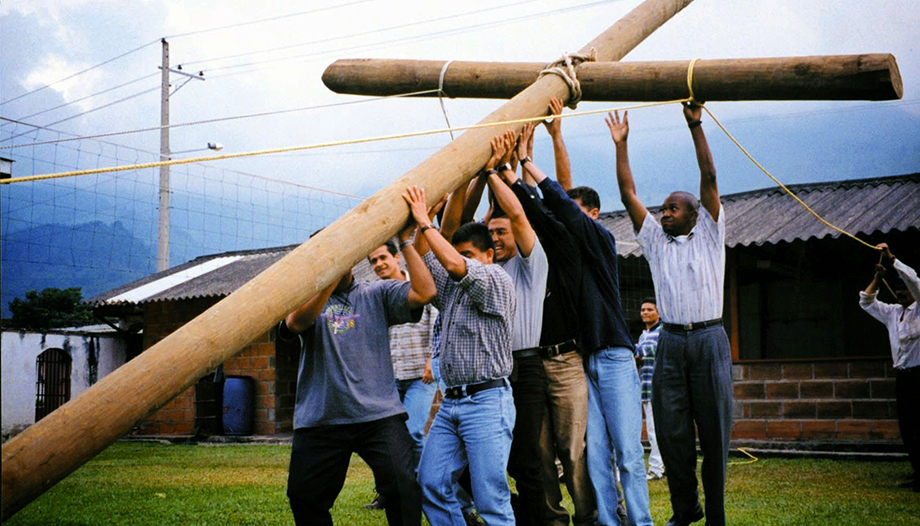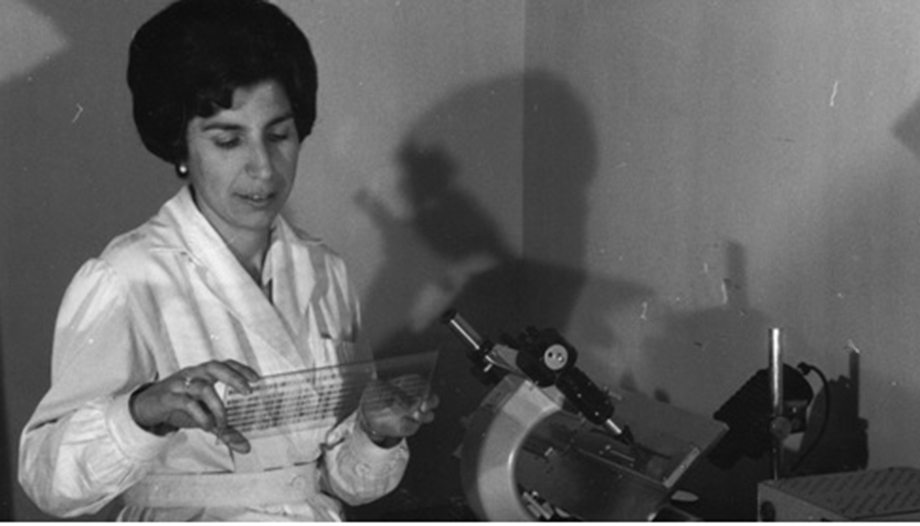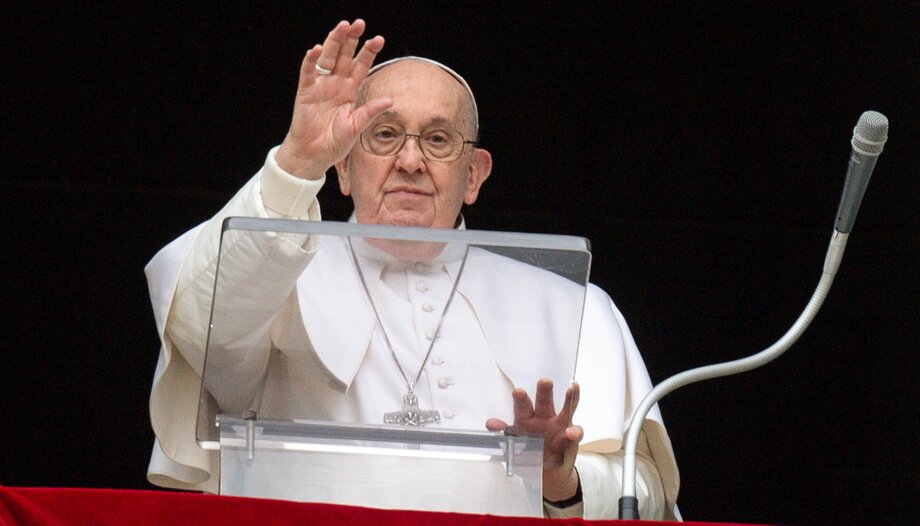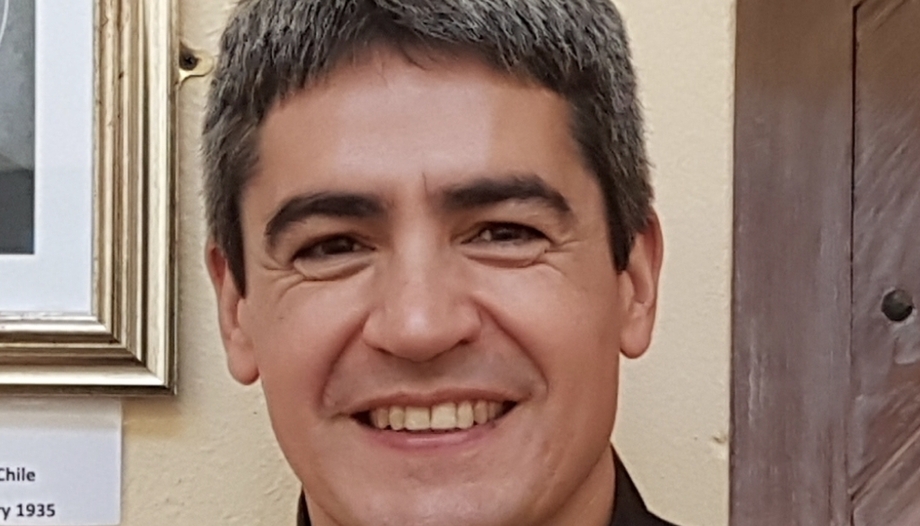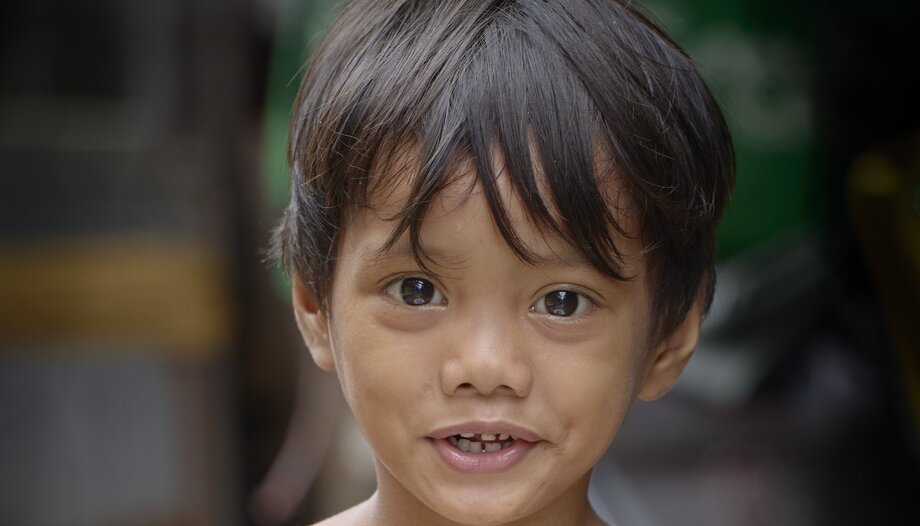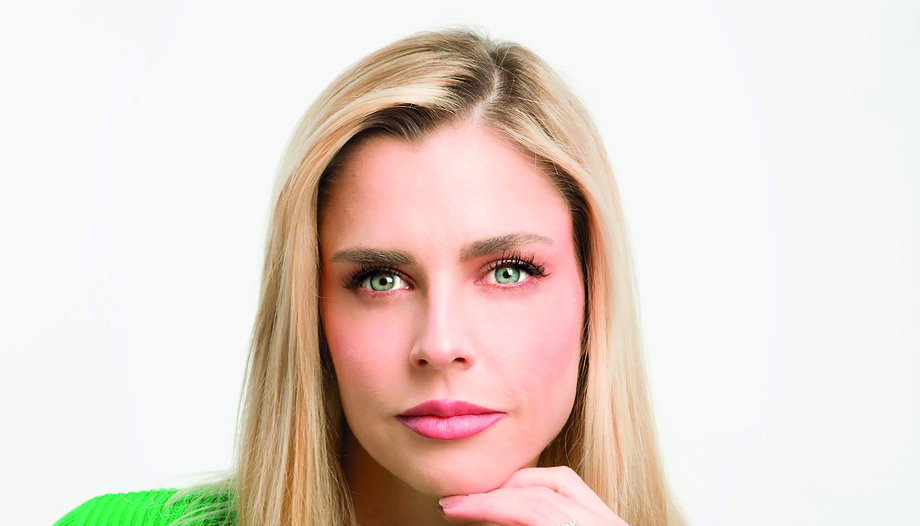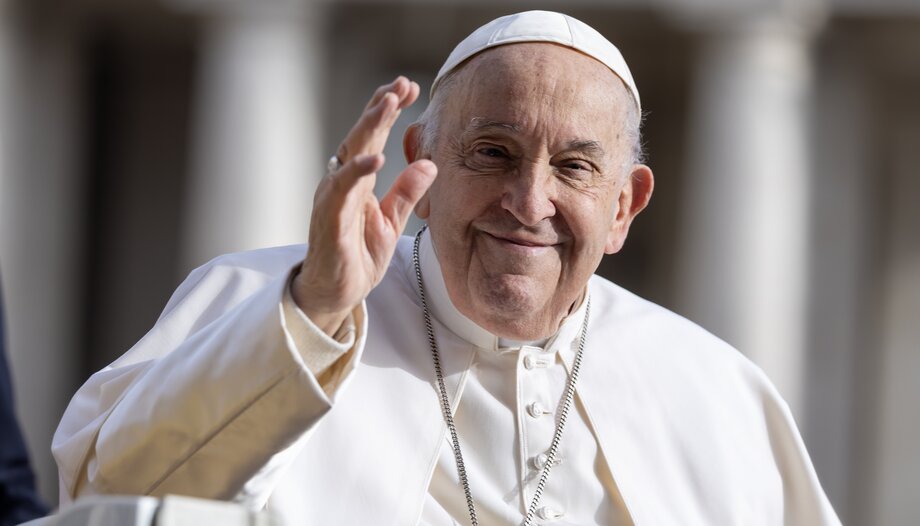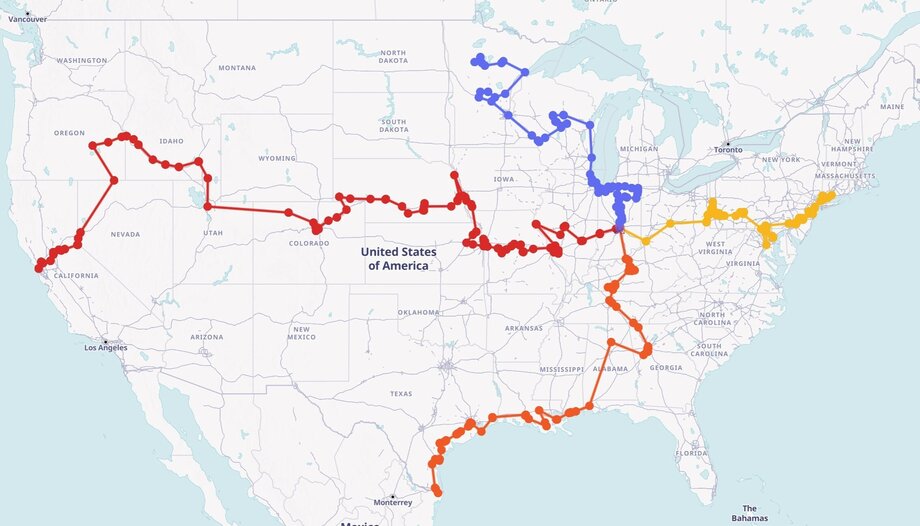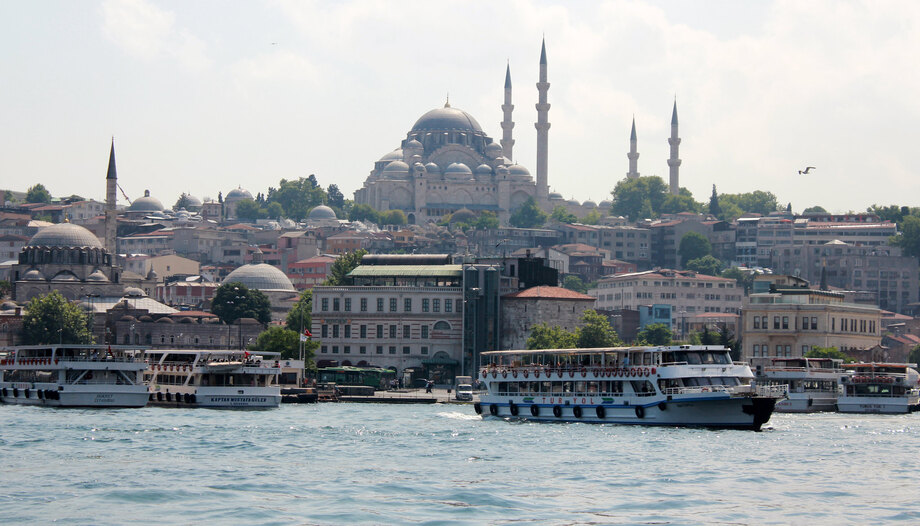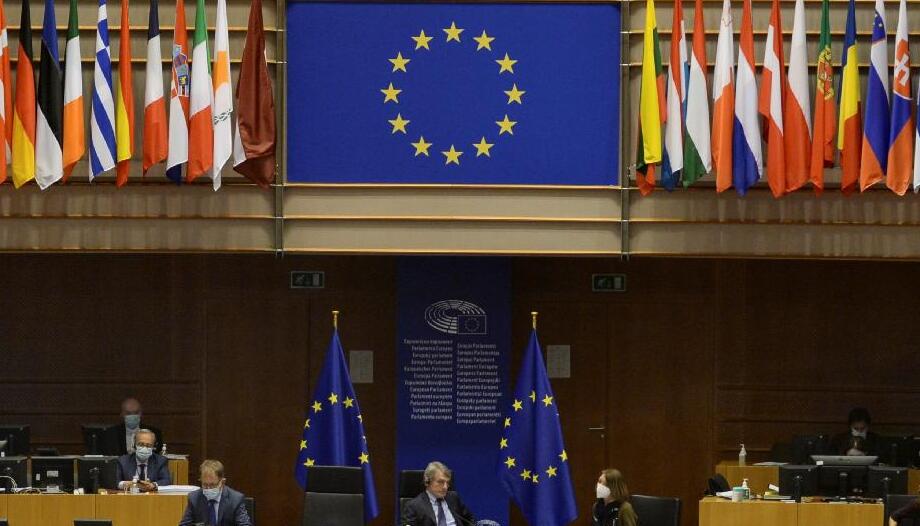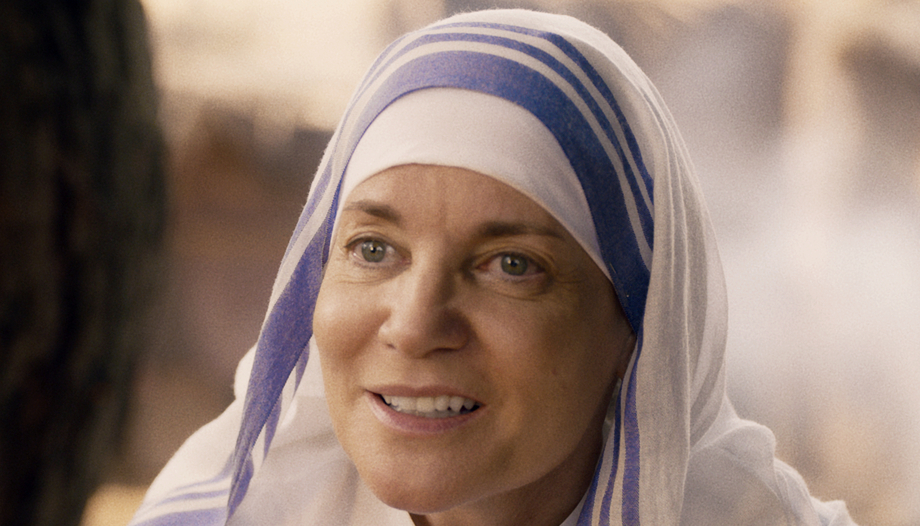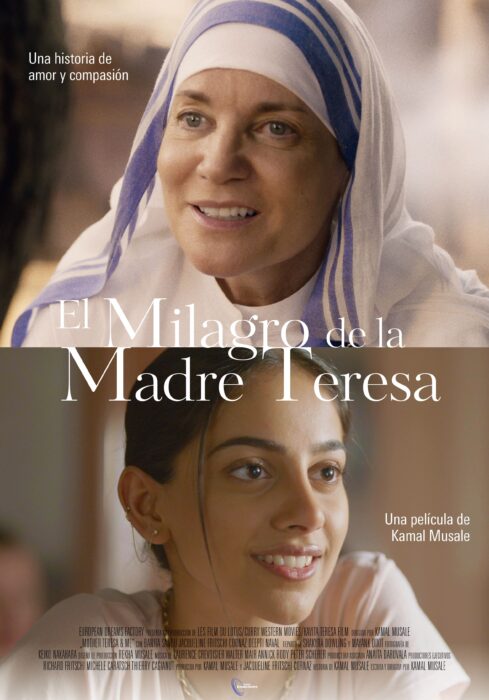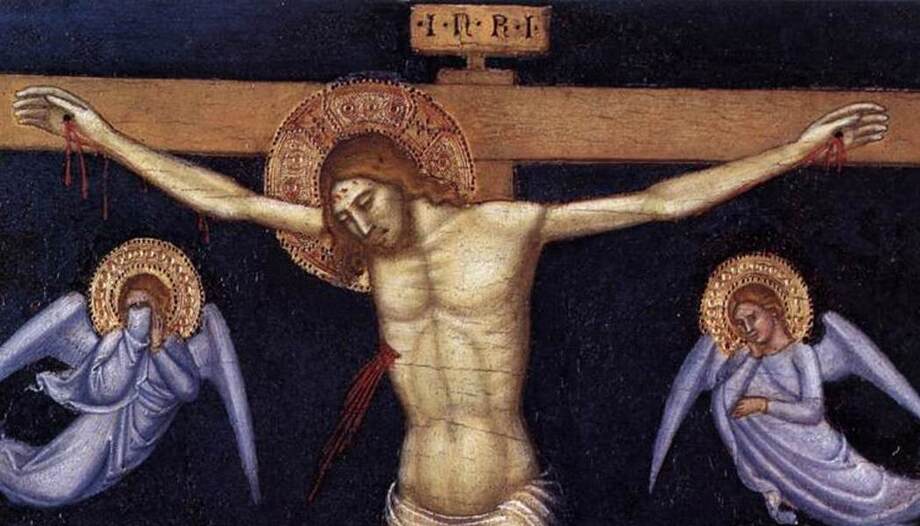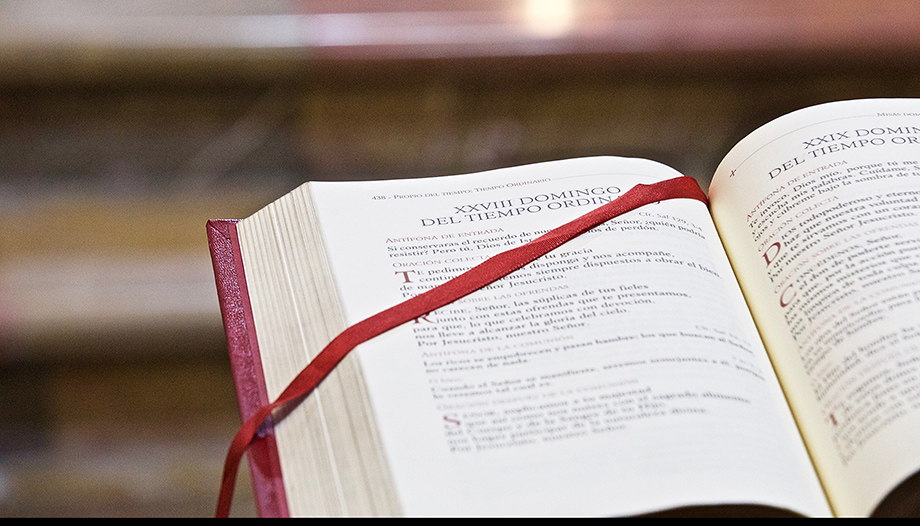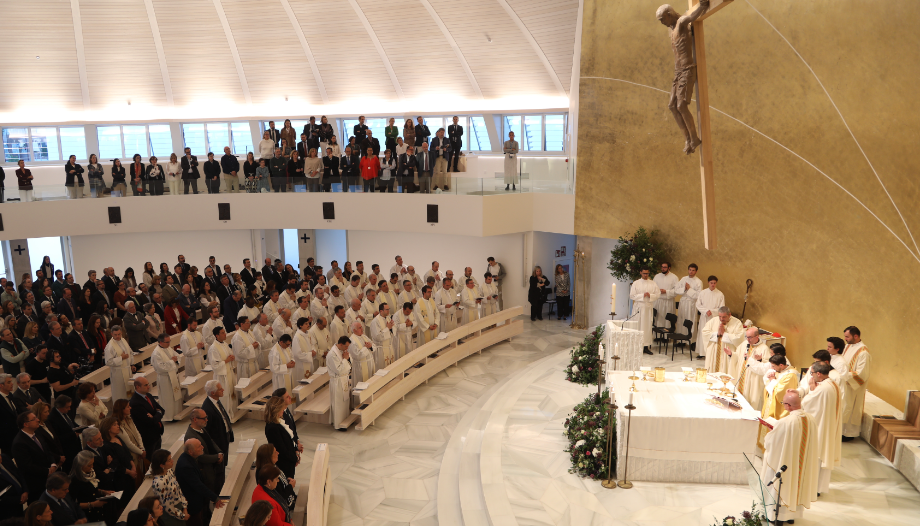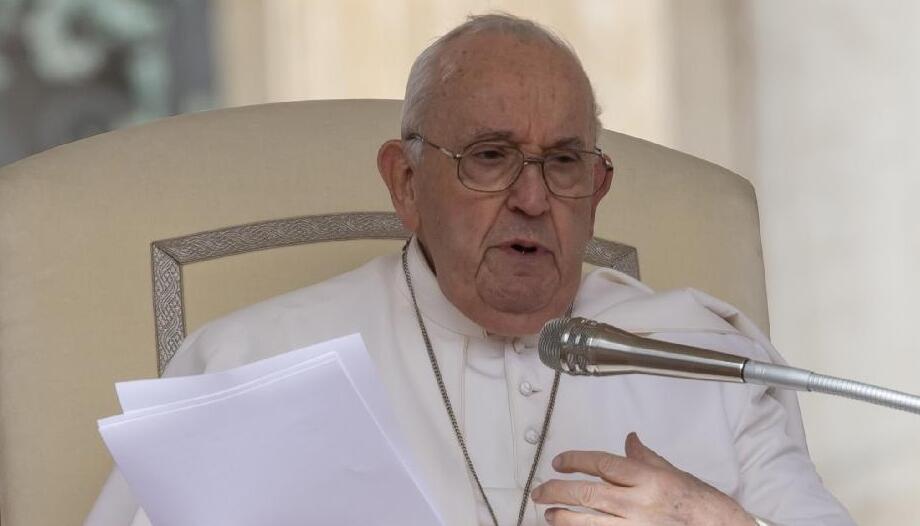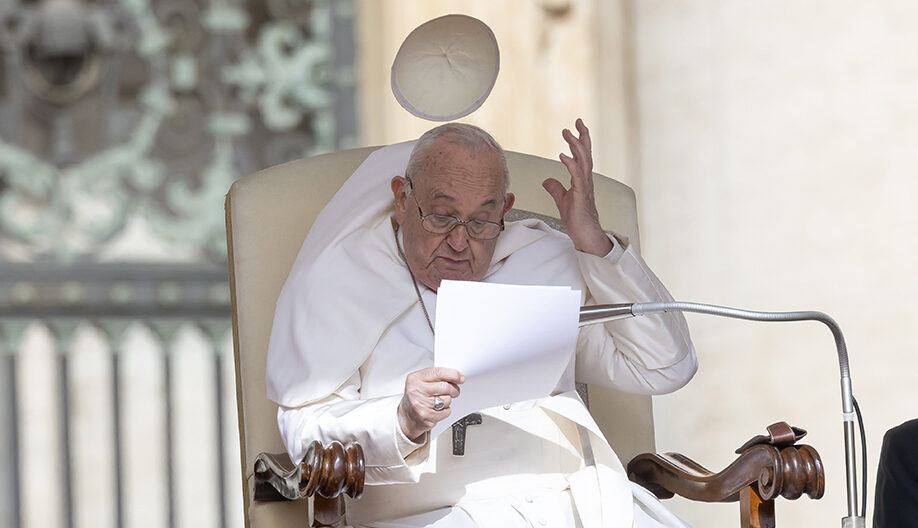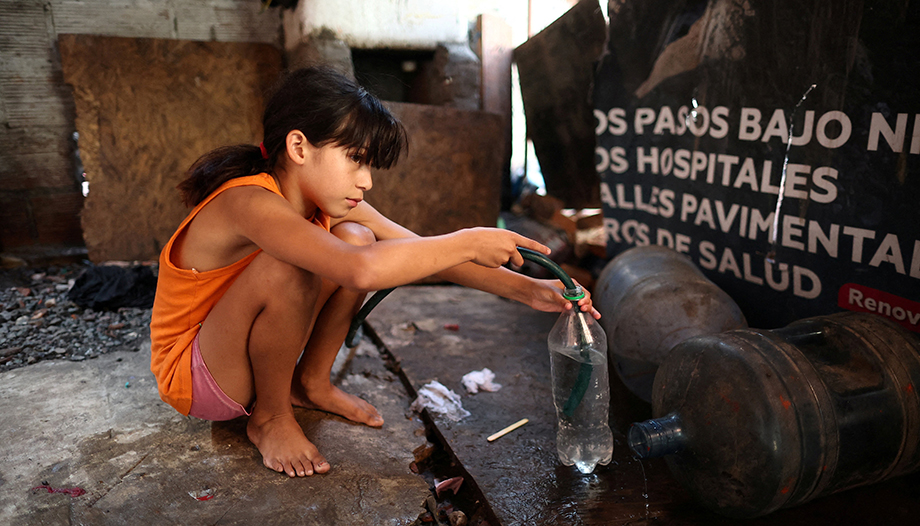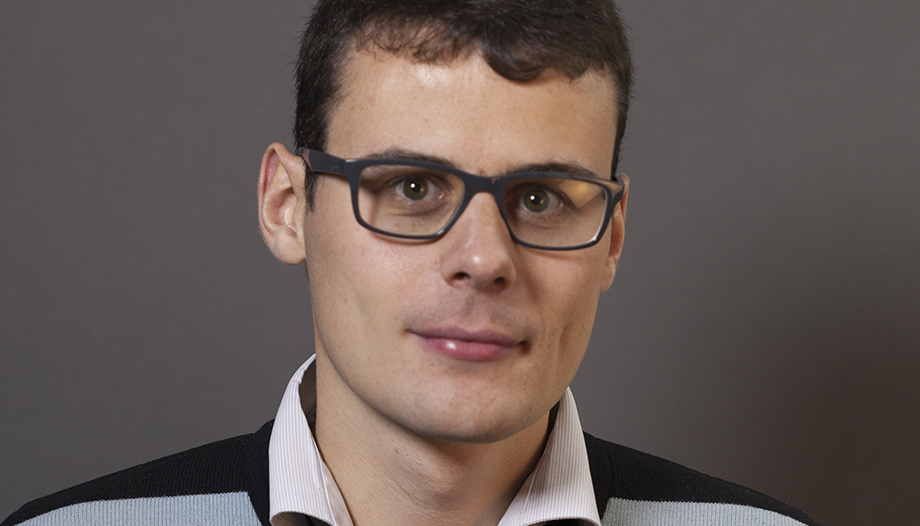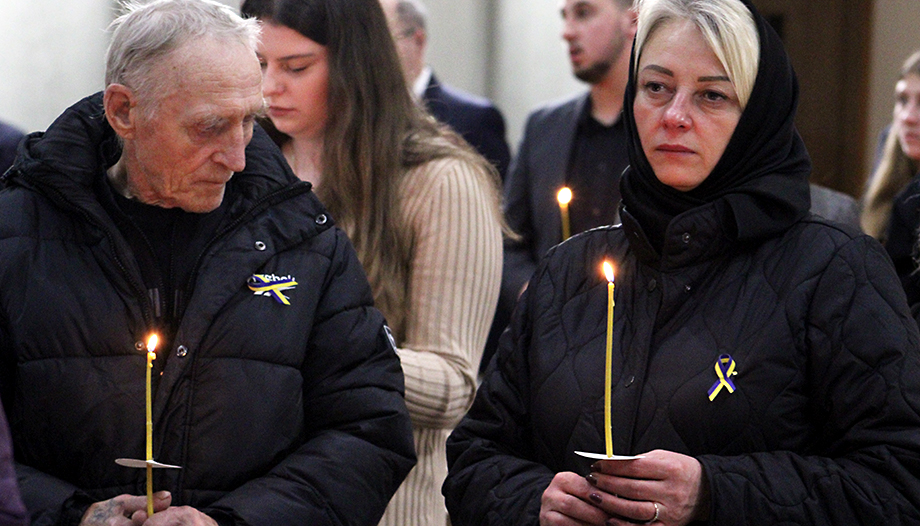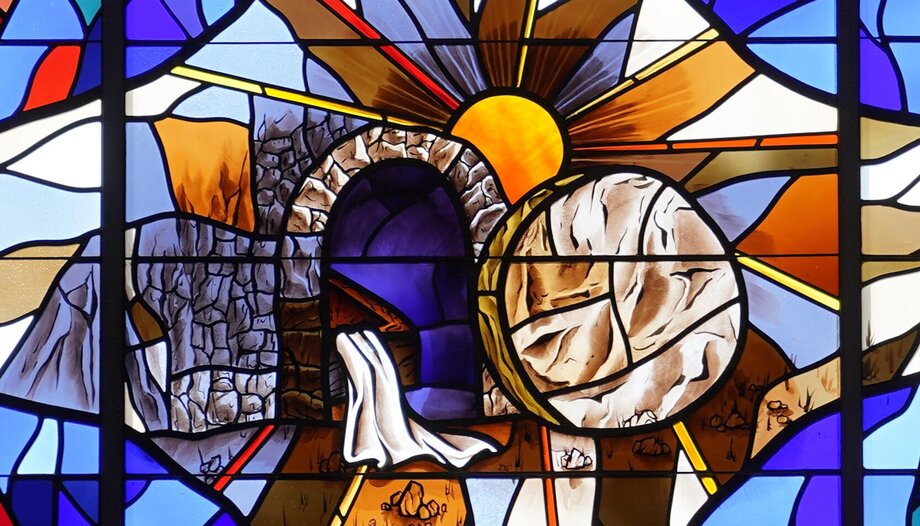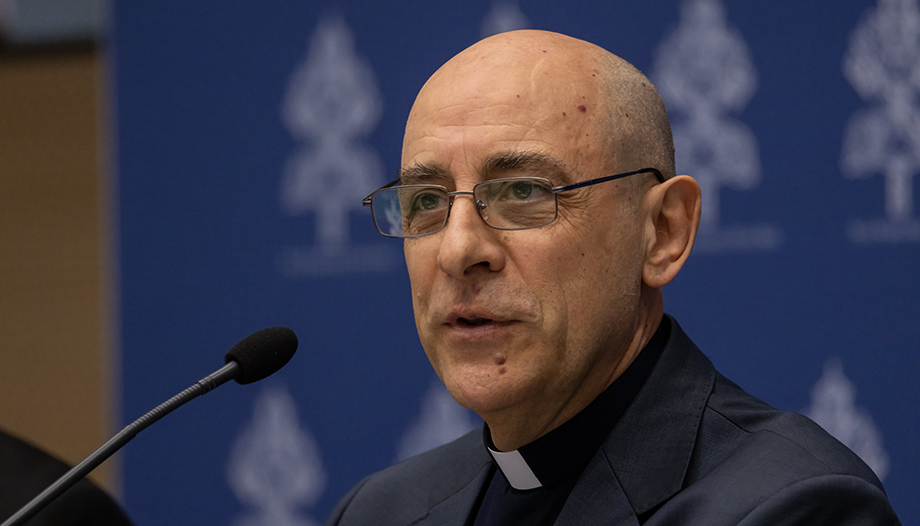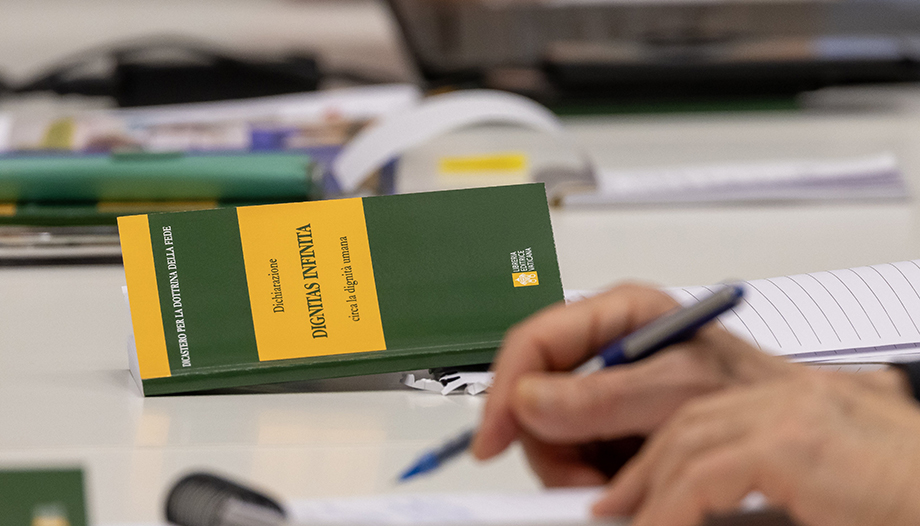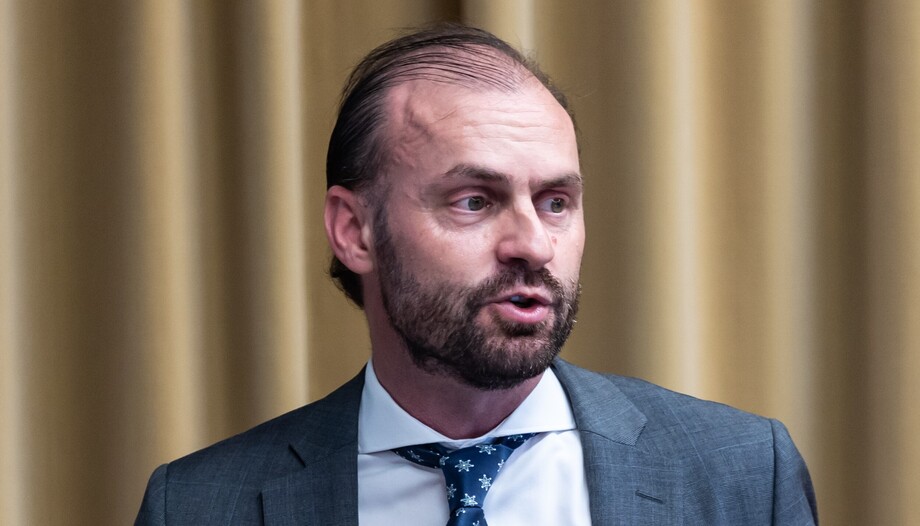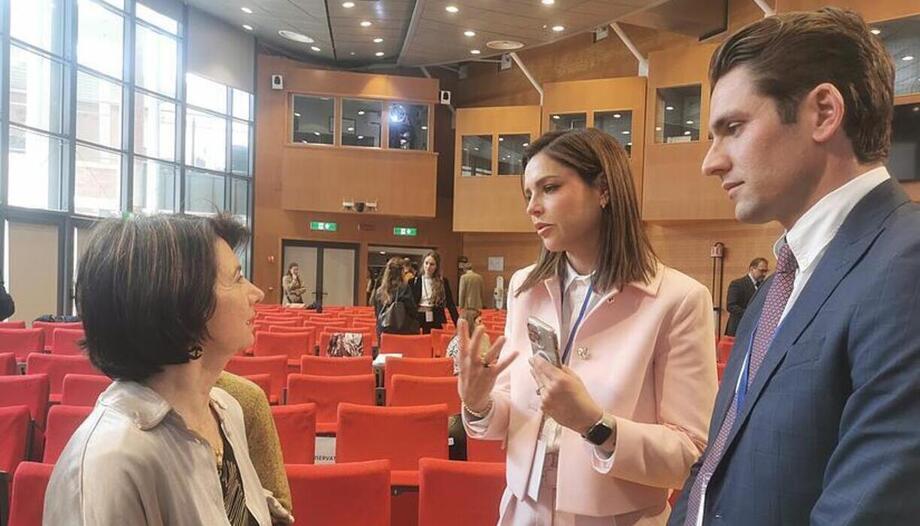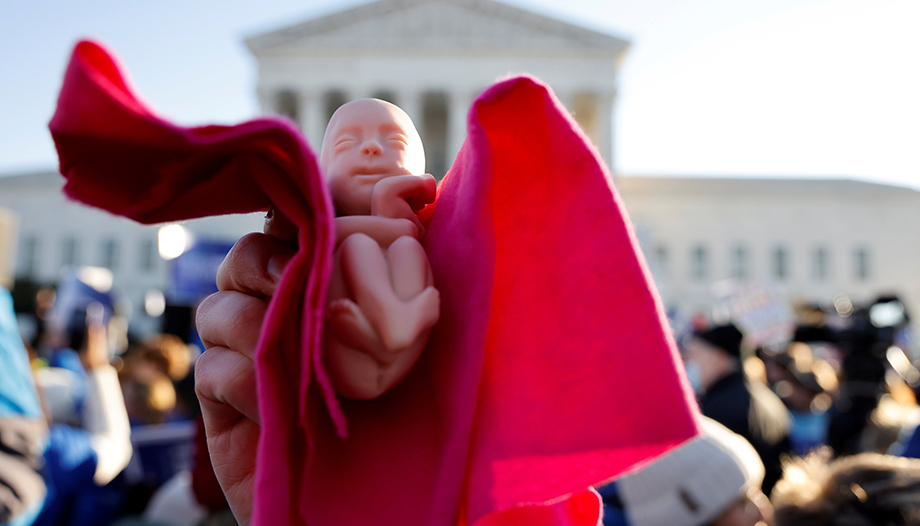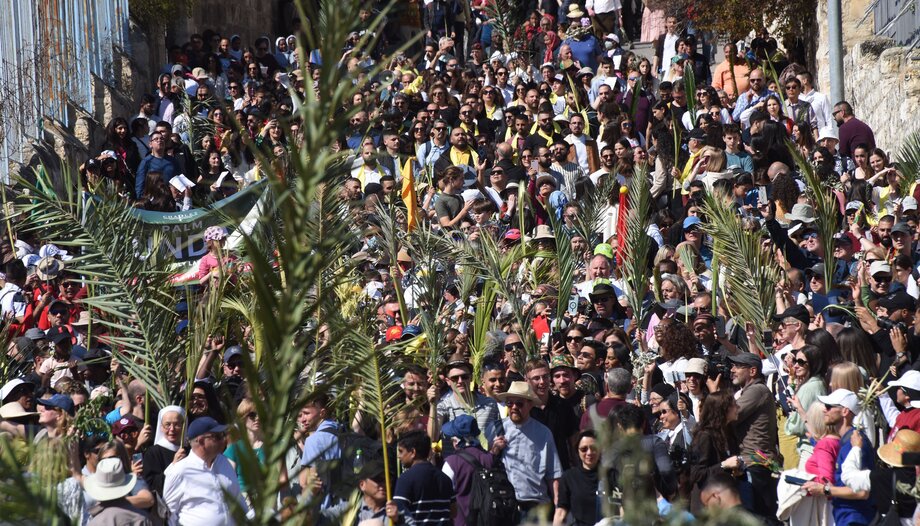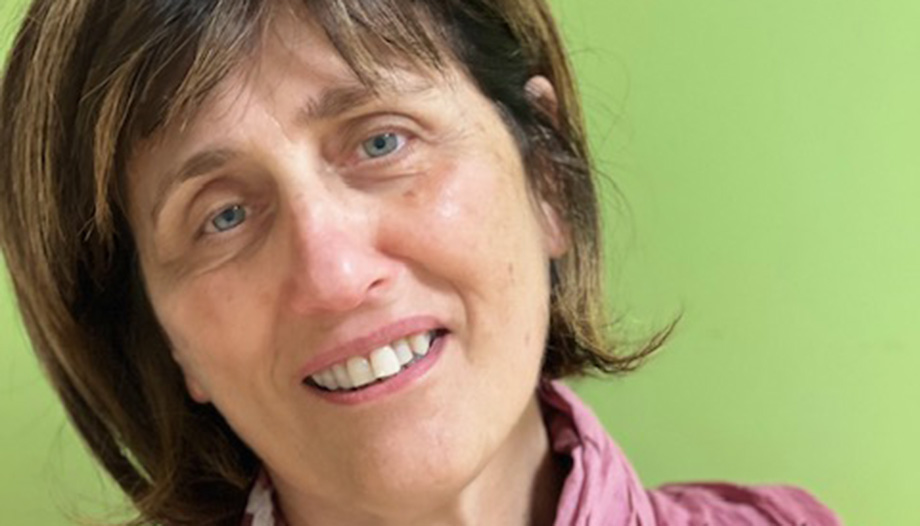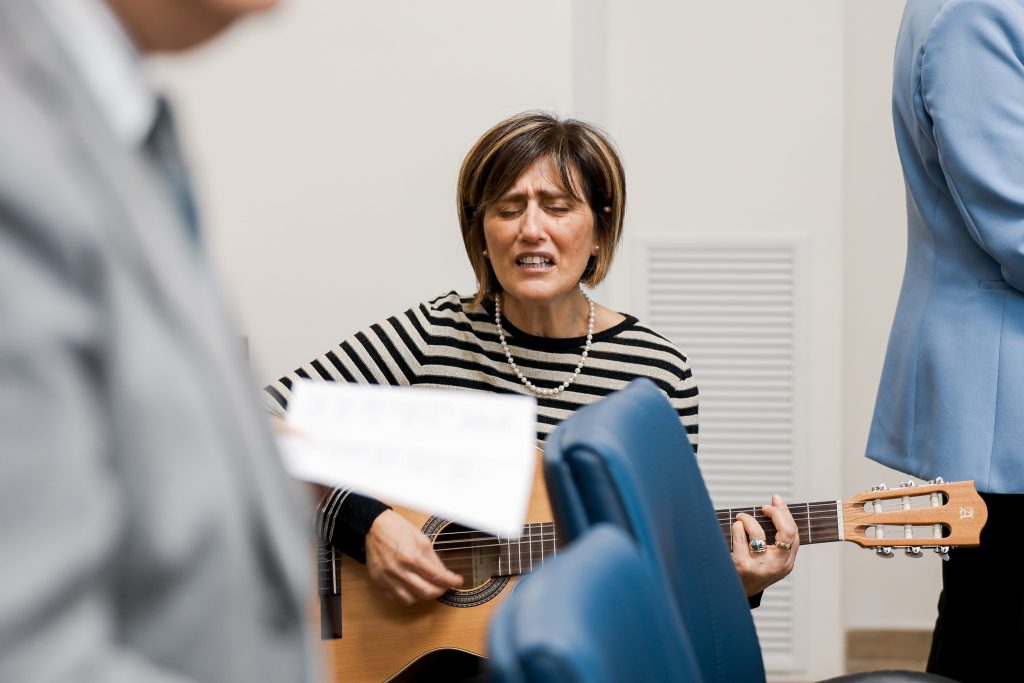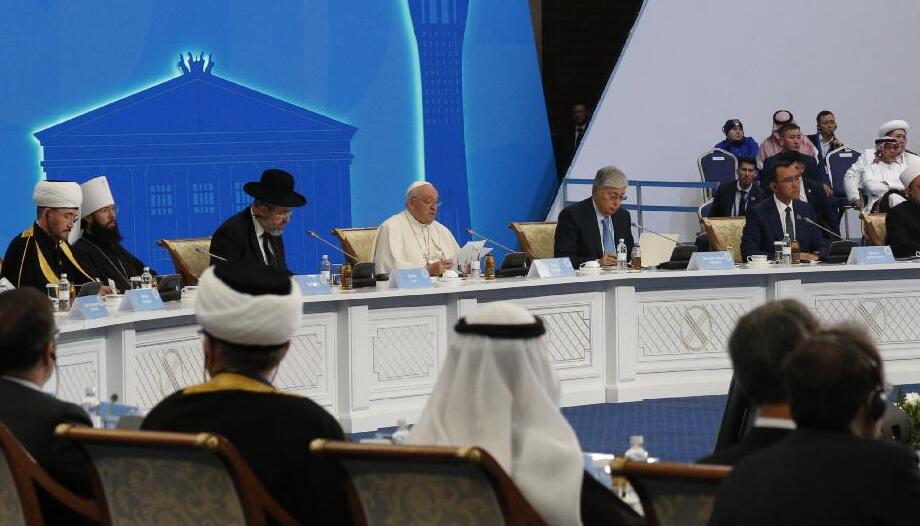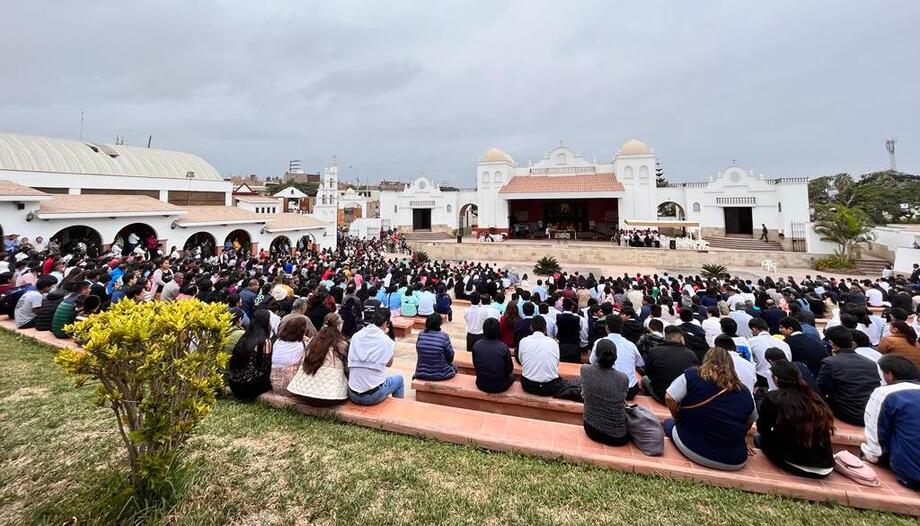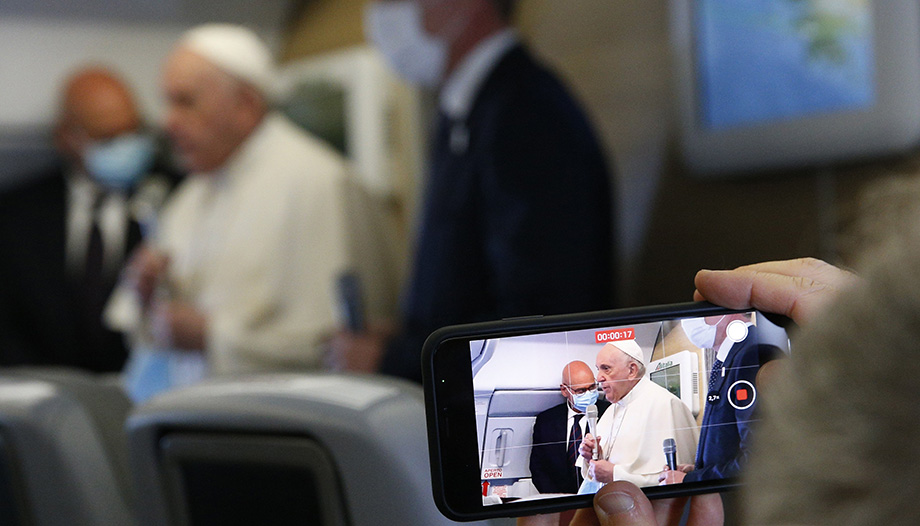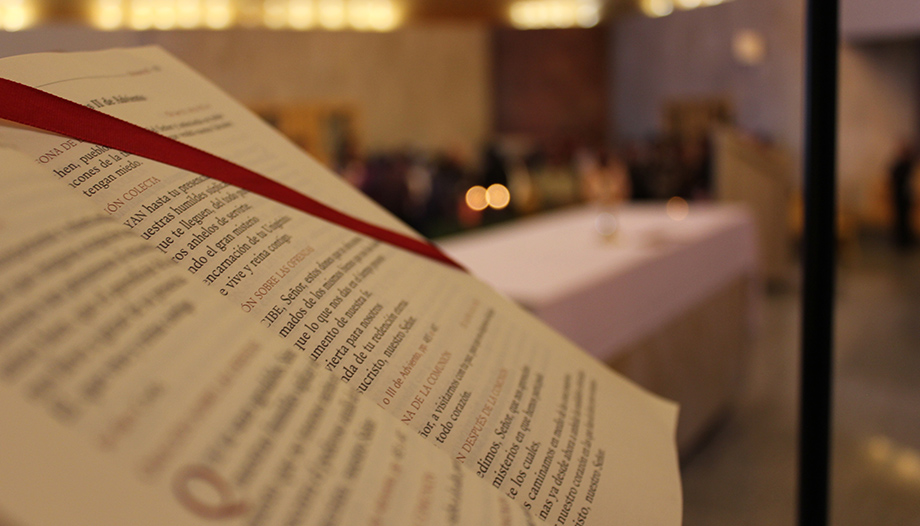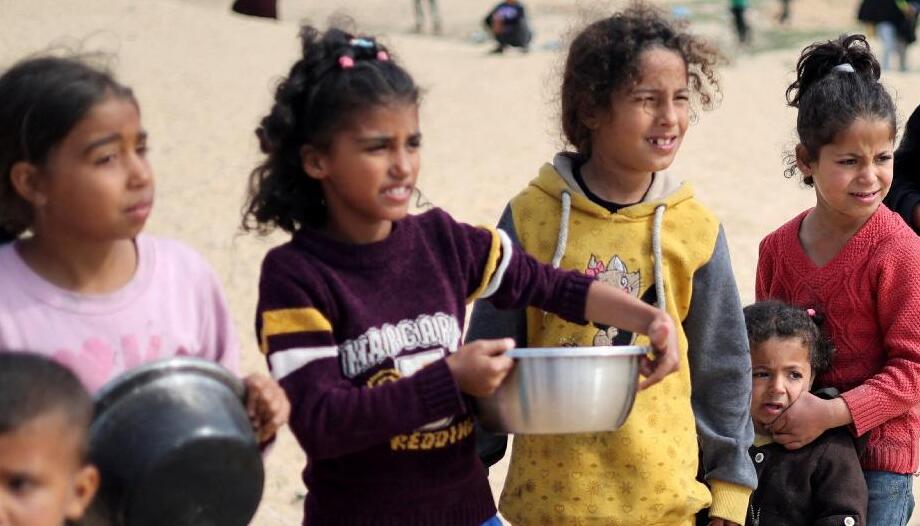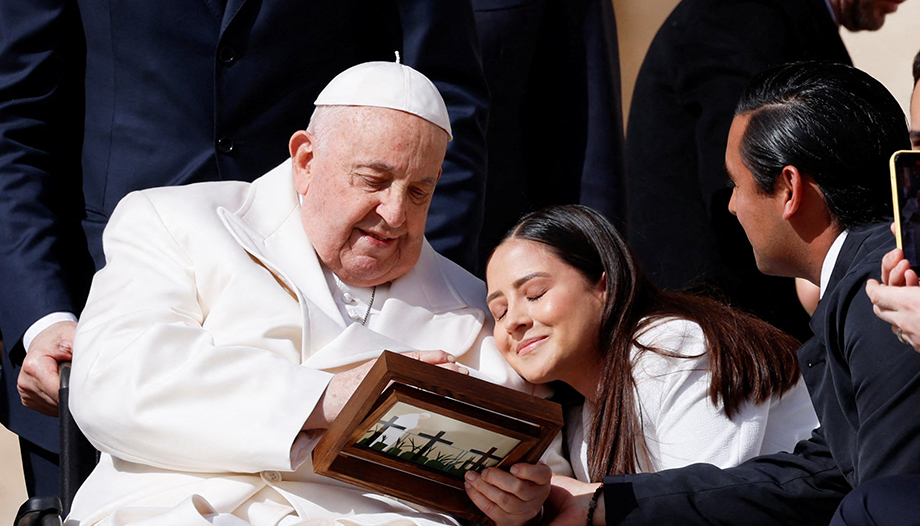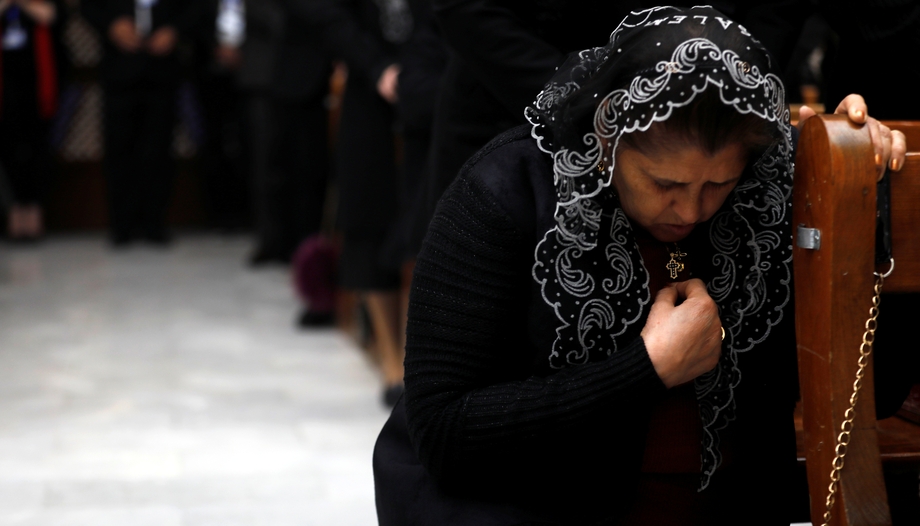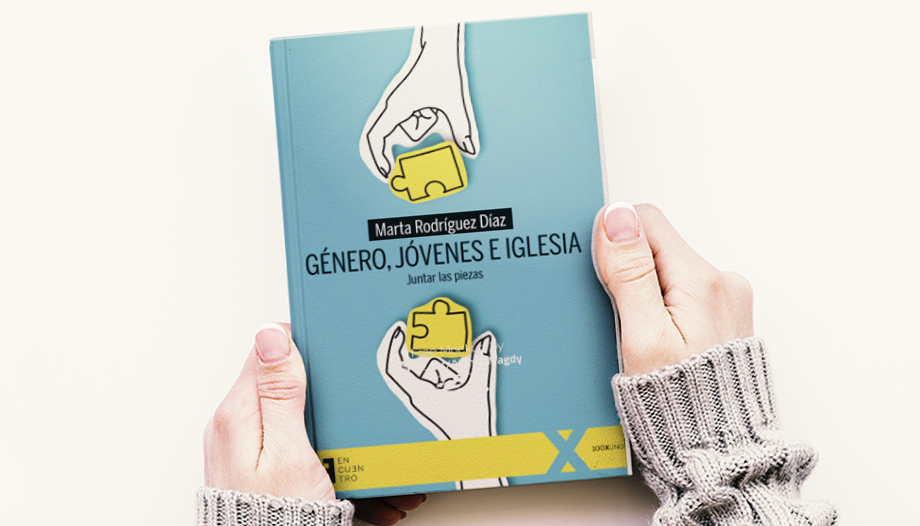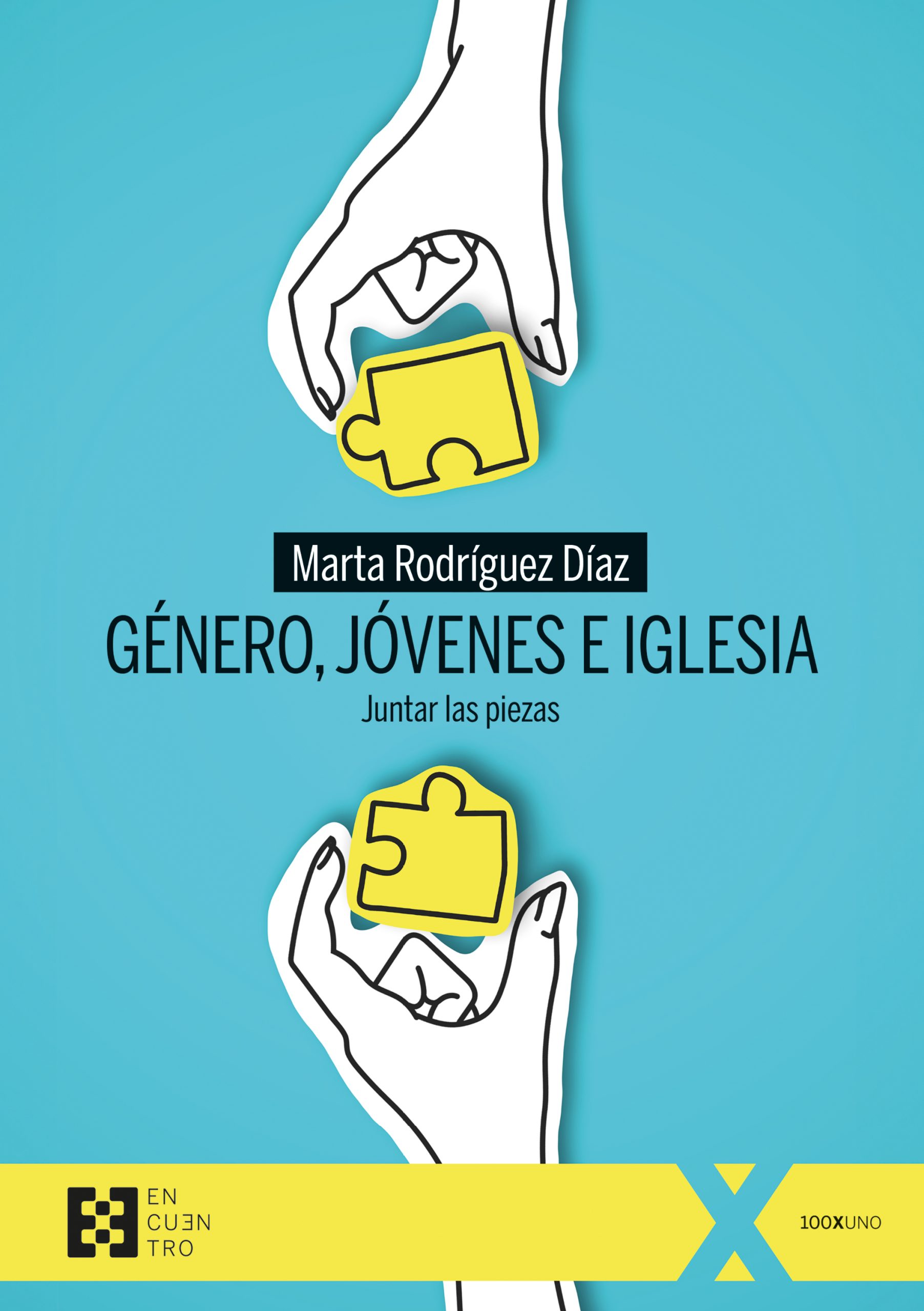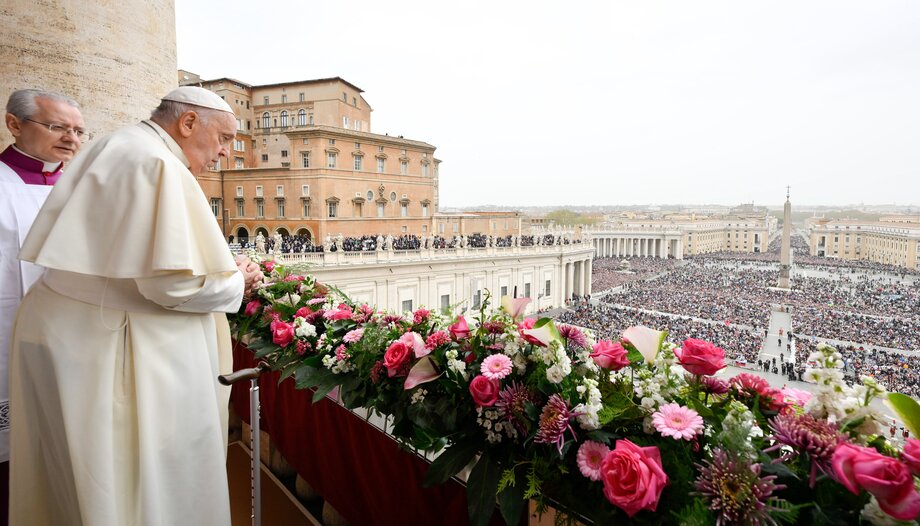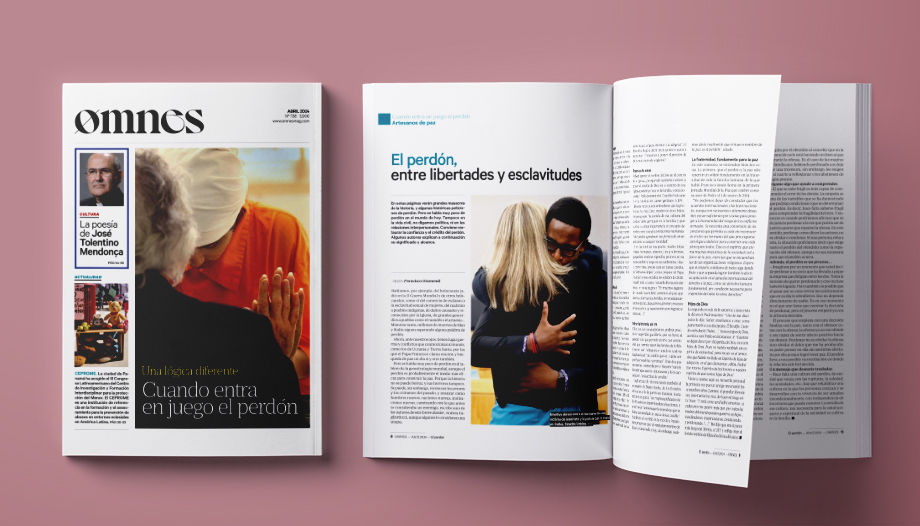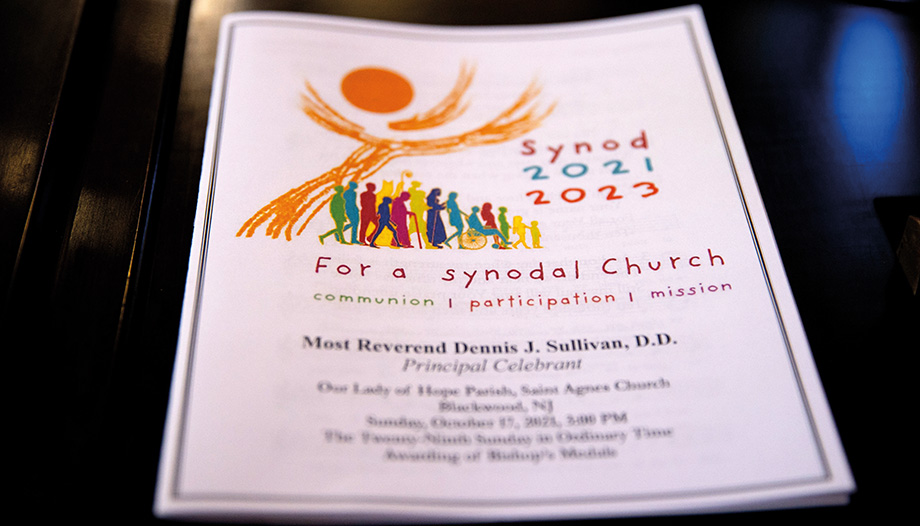The following is the Spanish translation of the Declaration text Dignitas infinita on human dignity presented this morning at the Holy See Press Office.
Presentation
At the Congress of March 15, 2019, the then Congregation for the Doctrine of the Faith decided to initiate "the drafting of a text underlining the indispensability of the concept of the dignity of the human person within Christian anthropology and illustrating the scope and beneficial implications at the social, political and economic levels, taking into account the latest developments of the subject in the academic field and its ambivalent understandings in the current context." A first draft in this regard, elaborated with the help of some experts during 2019, was considered unsatisfactory, in a restricted Consultation of the Congregation, on October 8 of the same year.
The Doctrinal Section prepared ex novo another draft of the text, based on input from various experts. This draft was presented and discussed in a restricted consultation on October 4, 2021. In January 2022, the new draft was presented to the Plenary Session of the Congregation, during which the members shortened and simplified the text.
On February 6, 2023, the new corrected text was evaluated in a restricted Consultation that proposed some further modifications. The new version was submitted to the Ordinary Sessions of the Dicastery (Fair IV) on May 3, 2023. The members agreed that the document, with some modifications, could be published. The Holy Father approved the Deliberata of this Fair IV in the course of the Audience granted to me on November 13, 2023. On that occasion, he also asked me to highlight in the text some themes closely related to the theme of dignity, such as the drama of poverty, the situation of migrants, violence against women, human trafficking, war and others. In order to best honor this indication of the Holy Father, the Doctrinal Section of the Dicastery dedicated a Congress to deepen the encyclical letter Fratelli tutti, which offers an original analysis and an in-depth study of the theme of human dignity "beyond all circumstances".
In a letter dated February 2, 2024, in view of the Fair IV of the following February 28, a new draft of the text, considerably modified, was sent to the members of the Dicastery with the following clarification: "This new wording became necessary to respond to a specific request of the Holy Father. The Holy Father had explicitly requested that greater attention be given to the grave violations of human dignity currently occurring in our time, in the path of the encyclical Fratelli tutti. The Doctrinal Section therefore took steps to reduce the initial part [...] and to elaborate in greater detail what the Holy Father had indicated." The Ordinary Session of the Dicastery finally approved the text of the present Declaration on February 28, 2024. During the Audience granted to me, together with the Secretary of the Doctrinal Section, Archbishop Armando Matteo, on March 25, 2024, the Holy Father approved this Declaration and ordered its publication.
The elaboration of the text, which took five years, allows us to understand that we are dealing with a document that, due to the seriousness and centrality of the question of dignity in Christian thought, required a considerable process of maturation to arrive at the final draft that we publish today.
In the first three parts, the Declaration recalls the fundamental principles and theoretical assumptions in order to offer important clarifications that can avoid the frequent confusion that arises in the use of the term "dignity". In the fourth part, it presents some current problematic situations in which the immense and inalienable dignity that corresponds to every human being is not adequately recognized. Denouncing these grave and current violations of human dignity is a necessary gesture, because the Church is deeply convinced that faith cannot be separated from the defense of human dignity, evangelization from the promotion of a dignified life, and spirituality from the commitment to the dignity of all human beings.
This dignity of all human beings can, in fact, be understood as "infinite" (dignitas infinita), as St. John Paul II affirmed in a meeting with people suffering from certain limitations or disabilities, to show how the dignity of all human beings goes beyond all external appearances or characteristics of people's concrete lives.
Pope Francis, in the encyclical Fratelli tutti, wished to emphasize with particular insistence that this dignity exists "beyond all circumstances," inviting everyone to defend it in every cultural context, at every moment of a person's existence, regardless of any physical, psychological, social or even moral deficiency. In this sense, the Declaration strives to show that we are faced with a universal truth, which we are all called to recognize, as a fundamental condition for our societies to be truly just, peaceful, healthy and, in short, authentically human.
The list of themes chosen by the Declaration is certainly not exhaustive. However, the themes addressed are precisely those that allow us to express various aspects of human dignity that may be obscured in the consciousness of many people today. Some will be easily shared by different sectors of our societies, others less so. Nevertheless, they all seem necessary to us because, taken together, they help us to recognize the harmony and richness of the thought on dignity that flows from the Gospel.
This Declaration does not pretend to exhaust such a rich and decisive theme, but it intends to provide some elements of reflection that will help us to keep it in mind in the complex historical moment in which we live so that, in the midst of so many worries and anxieties, we do not lose our way and expose ourselves to more lacerating and profound sufferings.
Víctor Manuel Card. Fernández
Prefect
Introduction
(Dignitas infinita) An infinite dignity, which is inalienably based on his own being, belongs to every human person, beyond all circumstances and in whatever state or situation he may be. This principle, fully recognizable even by reason alone, underlies the primacy of the human person and the protection of his rights. The Church, in the light of Revelation, reaffirms and confirms absolutely this ontological dignity of the human person, created in the image and likeness of God and redeemed in Christ Jesus. From this truth she draws the reasons for her commitment to those who are weaker and less capable, always insisting "on the primacy of the human person and the defense of his dignity beyond all circumstances.
2. This ontological dignity and the unique and eminent worth of every woman and every man who exists in this world were authoritatively enshrined in the Universal Declaration of Human Rights (December 10, 1948) by the General Assembly of the United Nations. In commemorating the 75th anniversary of this Document, the Church sees the opportunity to proclaim once again her conviction that, created by God and redeemed by Christ, every human being must be recognized and treated with respect and love, precisely because of his or her inalienable dignity. The aforementioned anniversary also offers the Church the opportunity to clarify some misunderstandings that often arise around human dignity and to address some concrete, serious and urgent questions related to it.
3. From the very beginning of her mission, the Church, impelled by the Gospel, has striven to affirm the freedom and promote the rights of all human beings. In recent times, thanks to the voice of the Popes, she has sought to formulate this commitment more explicitly through a renewed call for recognition of the fundamental dignity due to the human person. St. Paul VI said: "No anthropology is equal to the Church's anthropology of the human person, even considered individually, in terms of his originality, dignity, the intangibility and richness of his fundamental rights, sacredness, educability, aspiration to full development and immortality".
4. St. John Paul II, in 1979, affirmed during the Third Latin American Episcopal Conference in Puebla: "Human dignity is an evangelical value that cannot be disregarded without great offense to the Creator. This dignity is violated, at the individual level, when values such as freedom, the right to profess one's religion, physical and psychological integrity, the right to essential goods, to life, are not duly taken into account. It is violated, at the social and political level, when man is unable to exercise his right to participate or is subjected to unjust and illegitimate coercion, or subjected to physical or psychological torture, etc. [If the Church is present in the defense or promotion of human dignity, she does so in line with her mission, which, although religious and not social or political in character, cannot but consider man in the integrity of his being".
5. In 2010, in front of the Pontifical Academy for Life, Benedict XVI affirmed that the dignity of the person is "a fundamental principle that faith in Jesus Christ crucified and risen has always defended, especially when it is not respected in relation to the simplest and most defenseless subjects". On another occasion, speaking to economists, he said that "economics and finance do not exist only for themselves; they are only an instrument, a means. Their purpose is solely the human person and his full realization in dignity. This is the only capital that must be saved.
6. Since the beginning of his pontificate, Pope Francis has invited the Church to "confess a Father who infinitely loves every human being" and to "discover that 'in so doing he confers an infinite dignity upon him'", strongly emphasizing that this immense dignity represents an original datum to be acknowledged with loyalty and accepted with gratitude. It is precisely in this recognition and acceptance that a new coexistence among human beings can be founded, one that declines sociability in a horizon of authentic fraternity: only "by recognizing the dignity of every human person, can we give birth to a worldwide desire for brotherhood among all". According to Pope Francis, "this source of human dignity and fraternity is in the Gospel of Jesus Christ", but it is also a conviction that human reason can arrive at through reflection and dialogue, since "we must respect the dignity of others in every situation, not because we do not invent or assume the dignity of others, but because there is indeed in them a value that surpasses material things and circumstances, and which demands that they be treated differently. That every human being possesses an inalienable dignity is a truth that responds to human nature beyond any cultural change." In fact, Pope Francis concludes, "the human being has the same inviolable dignity in every age of history and no one can feel authorized by circumstances to deny this conviction or not to act accordingly." In this context, his encyclical Fratelli tutti already constitutes a kind of Magna Carta of the current tasks for safeguarding and promoting human dignity.
A fundamental clarification
7. Although there is now a fairly general consensus on the importance and even the normative scope of the dignity and the unique and transcendent value of every human being, the expression "human dignity" often runs the risk of lending itself to many meanings and thus to possible misunderstandings and "contradictions that lead us to ask whether the equal dignity of all human beings [...], [is] truly recognized, respected, protected and promoted in all circumstances". All this leads us to recognize the possibility of a fourfold distinction of the concept of dignity: ontological dignity, moral dignity, social dignity and finally existential dignity. The most important sense remains, as has been argued so far, that linked to the ontological dignity that corresponds to the person as such by the mere fact of existing and having been willed, created and loved by God. This dignity can never be eliminated and remains valid beyond all circumstances in which individuals may find themselves. When we speak of moral dignity we are referring, as we have just considered, to the exercise of freedom on the part of the human creature. The latter, although endowed with conscience, always remains open to the possibility of acting against it. In doing so, the human being behaves in a way that is "not worthy" of his nature as a creature loved by God and called to love others. But this possibility exists. And not only that. History testifies that the exercise of freedom against the law of love revealed by the Gospel can reach incalculable heights of evil inflicted on others. When this happens, we are faced with people who seem to have lost every trace of humanity, every trace of dignity. In this regard, the distinction introduced here helps us to discern precisely between the aspect of moral dignity, which can in fact be "lost," and the aspect of ontological dignity, which can never be annulled. And it is precisely because of this
Biblical perspectives
11. Biblical revelation teaches that all human beings possess intrinsic dignity because they are created in the image and likeness of God: "God said, 'Let us make man in our image, after our likeness' [...] So God created man in his own image, in the image of God created he him; male and female created he them" (Gen 1, 2627). Humanity has a specific quality that makes it not reducible to pure materiality. The "image" does not define the soul or intellectual capacities, but the dignity of man and woman. Both, in their mutual relationship of equality and reciprocal love, fulfill the function of representing God in the world and are called to care for and nurture the world. Being created in the image of God means, therefore, that we possess a sacred value within us that transcends all sexual, social, political, cultural and religious distinctions. Our dignity is conferred upon us, not claimed or deserved. Every human being is loved and willed by God for his or her own sake and is therefore inviolable in his or her dignity. In the ExodusAt the heart of the Old Testament, God is shown as the one who hears the cry of the poor, sees the misery of his people, cares for the least and the oppressed (cf. Ex 3, 7; 22, 20-26). The same teaching reappears in the Deuteronomic Code (cf. Dt 12-26): here the teaching on rights is transformed into a "manifesto" of human dignity, in particular in favor of the triple category of the orphan, the widow and the foreigner (cf. Dt 24, 17). The ancient precepts of the Exodus are remembered and actualized by the preaching of the prophets, who represent the critical conscience of Israel. The prophets Amos, Hosea, Isaiah, Micah and Jeremiah devote entire chapters to denouncing injustice. Amos bitterly rebukes the oppression of the poor, the lack of recognition of any fundamental human dignity for the miserable (cf. Am 2, 6-7; 4, 1; 5, 11-12). Isaiah pronounces a curse against those who trample on the rights of the poor, denying them all justice: "woe to those who establish wicked decrees, and publish vexatious prescriptions, to oppress the poor in judgment, and to deprive the humble of my people of their right" (Is 10, 1-2). This prophetic teaching is reflected in the sapiential literature. The Sirach equates the oppression of the poor with murder: "he kills his neighbor who robs him of his livelihood, he who does not pay the wages of the day laborer sheds blood" (Yes 34, 22). In the PsalmsThe religious relationship with God passes through the defense of the weak and needy: "protect the helpless and the orphan, do justice to the humble and the needy, defend the poor and the destitute, taking them out of the hands of the guilty" (Salt 82, 3-4).
12. Jesus was born and raised in humble conditions and revealed the dignity of the needy and workers. Throughout his ministry, Jesus affirmed the value and dignity of all who are image bearers of God, regardless of their social status and external circumstances. Jesus broke down cultural and cultic barriers, restoring dignity to the "discarded" or those considered on the margins of society: tax collectors (cf. Mt 9, 10-11), women (cf. Jn 4, 1-42), children (cf. Mc 10:14-15), lepers (cf. Mt 8:2-3), the sick (cf. Mc 1:29-34), foreigners (cf. Mt 25, 35), widows (cf. Lc 7, 11-15). He heals, nourishes, defends, frees, saves. He is described as a shepherd solicitous for the one lost sheep (cf. Mt 18, 12-14). He himself identifies himself with his least brothers and sisters: "as you did it to one of the least of these my brethren, you did it to me" (Luke 18:12-14).Mt 25, 40). In biblical language, the "little ones" are not only children by age, but the helpless, the most insignificant, the marginalized, the oppressed, the discarded, the poor, the marginalized, the ignorant, the sick, the degraded by the dominant groups. The glorious Christ will judge on the basis of love of neighbor, which consists in having assisted the hungry, the thirsty, the stranger, the naked, the sick, the imprisoned, with whom he himself identifies (cf. Mt 25, 34-36). For Jesus, the good done to every human being, independently of ties of blood or religion, is the only criterion of judgment. The apostle Paul affirms that every Christian must behave according to the demands of the dignity and respect for the rights of all human beings (cf. Rm 13:8-10), according to the new commandment of charity (cf. 1 Co 13, 1-13).
13. The development of Christian thought stimulated and subsequently accompanied the progress of human reflection on the theme of dignity. Classical Christian anthropology, based on the great tradition of the Fathers of the Church, highlighted the doctrine of the human being created in the image and likeness of God and his unique role in creation. Medieval Christian thought, critically scrutinizing the legacy of ancient philosophical thought, arrived at a synthesis of the notion of person, recognizing the metaphysical foundation of his dignity, as attested by the following words of St. Thomas Aquinas: "person means that which in every nature is most perfect, that which subsists in rational nature". This ontological dignity, in its privileged manifestation through free human action, was later emphasized above all by the Christian humanism of the Renaissance. Even in the vision of modern thinkers, such as Descartes and Kant, who questioned some of the foundations of traditional Christian anthropology, the echoes of Revelation are strongly perceived. Starting from some more recent philosophical reflections on the status of theoretical and practical subjectivity, Christian reflection has then come to emphasize even more the depth of the concept of dignity, reaching in the twentieth century an original perspective, such as that of personalism. This perspective not only takes up the question of subjectivity, but deepens it in the direction of intersubjectivity and the relationships that unite human persons among themselves. The Christian and contemporary anthropological proposal has also been enriched by the thought coming from this last vision.
The times defense of the weak and needy: "Protect the helpless and the orphan, do justice to the humble and the needy, defend the poor and the destitute, taking them out of the hands of the guilty" (Ps 82:3-4).
Current times
14. In our day, the term "dignity" is used primarily to emphasize the singular character of the human person, incommensurable with respect to other beings in the universe. In this context, we can understand the way in which the term dignity is used in the United Nations Declaration of 1948, which speaks of "the inherent dignity and the equal and inalienable rights of all members of the human family. Only this inalienable character of human dignity makes it possible to speak of the rights of man.
15. To further clarify the concept of dignity, it is important to note that dignity is not granted to the person by other human beings, on the basis of certain gifts and qualities, so that it could eventually be withdrawn. If dignity were granted to the person by other human beings, then it would be given in a conditional and alienable way, and the very meaning of dignity (however worthy of great respect it may be) would be exposed to the risk of being abolished. In reality, dignity is intrinsic to the person, not conferred a posteriori, prior to any recognition, and cannot be lost. Therefore, all human beings possess the same intrinsic dignity, regardless of whether or not they are capable of expressing it adequately.
16. For this reason, the Second Vatican Council speaks of the "exalted dignity of the human person, of his superiority over all things and of his universal and inviolable rights and duties". As the incipit of the conciliar Declaration Dignitatis Humanae recalls, "the people of our time are becoming more and more aware of the dignity of the human person, and the number of those who demand that men in their actions should enjoy and use their own responsible judgment and freedom, guided by a conscience of duty and not moved by coercion, is increasing". This freedom of thought and conscience, both individual and communal, is based on the recognition of human dignity "as it is known by the revealed word of God and by natural reason itself". The same ecclesial magisterium has matured, ever more fully, the meaning of this dignity, together with the demands and implications related to it, arriving at the understanding that the dignity of every human being is such beyond all circumstances.
2. The Church proclaims, promotes and guarantees human dignity.
17. The Church proclaims the equal dignity of all human beings, regardless of their condition in life or their quality of life. This proclamation is based on a threefold conviction which, in the light of the Christian faith, confers an immeasurable value on human dignity and reinforces its intrinsic demands.
An indelible image of God
18. First of all, according to Revelation, the dignity of the human person derives from the love of his Creator, who has imprinted on him the indelible traits of his image (cf. Gen 1:26), calling him to know him, to love him and to live in a relationship of covenant with God himself and of fraternity, justice and peace with all other men and women. In this vision, dignity refers not only to the soul, but to the person as an inseparable unity, and therefore also inherent in his or her body, which in its own way participates in the human person's being the image of God and is also called to share in the glory of the soul in divine beatitude.
Christ elevates the dignity of man
19. A second conviction comes from the fact that the dignity of the human person was revealed in its fullness when the Father sent his Son who fully assumed human existence: "the Son of God, in the mystery of the Incarnation, confirmed the dignity of the body and soul which constitute the human being". Thus, by uniting himself in a certain way to every human being through his incarnation, Jesus Christ confirmed that every human being possesses an inestimable dignity, by the mere fact of belonging to the same human community, and that this dignity can never be lost. By proclaiming that the Kingdom of God belongs to the poor, to the humble, to those who are despised, to those who suffer in body and spirit; by curing all kinds of illnesses and diseases, even the most dehumanizing ones such as leprosy; by affirming that what is done to these people is done to him, because he is present in those people, Jesus brought the great novelty of the recognition of the dignity of every person, and also, and above all, of those people who were qualified as "unworthy". This new principle of human history, whereby the human being is more "worthy" of respect and love the weaker, more miserable and suffering, to the point of losing his own human "figure", has changed the face of the world, giving rise to institutions that care for people in inhuman conditions: abandoned newborns, orphans, the elderly in solitude, the mentally ill, people with incurable diseases or serious malformations and those who live on the street.
A vocation to the fullness of dignity
20. The third conviction concerns the ultimate destiny of the human being: after creation and the incarnation, the resurrection of Christ reveals to us a further aspect of human dignity. Indeed, "the highest reason for human dignity consists in man's vocation to union with God," which is destined to last forever. Thus, "the dignity [of human life] is linked not only to its origins, to its divine origin, but also to its end, to its destiny of communion with God in his knowledge and love. In the light of this truth, St. Irenaeus specifies and completes his exaltation of man: 'man who lives' is 'the glory of God' but 'man's life consists in the vision of God'".
21. Consequently, the Church believes and affirms that all human beings, created in the image and likeness of God and recreated in the Son made man, crucified and risen, are called to grow under the action of the Holy Spirit to reflect the glory of the Father, in that same image, participating in eternal life (cf. Jn 10:15-16, 17:22-24; 2 Cor 3:18; Eph 1:3-14). Indeed, "Revelation ... manifests the dignity of the human person in all its fullness".
A commitment to one's own freedom
22. Although every human being possesses an inalienable and intrinsic dignity from the beginning of his existence as an irrevocable gift, it is up to his free and responsible decision to express and manifest it in fullness or to tarnish it. Some Fathers of the Church - such as St. Irenaeus or St. John Damascene - established a distinction between the image and the likeness spoken of in Genesis, thus allowing a dynamic vision of human dignity itself: the image of God is entrusted to the freedom of the human being so that, under the guidance and action of the Spirit, his or her likeness to God grows and each person attains his or her highest dignity. Each person is called to manifest on the existential and moral level the ontological horizon of his or her dignity, to the extent that with his or her own freedom he or she orients himself or herself towards the true good, as a response to the love of God. Thus, insofar as he is created in the image of God, on the one hand, the human person never loses his dignity and never ceases to be called to freely embrace the good; on the other hand, insofar as the human person responds to the good, his dignity can manifest itself, grow and mature freely, dynamically and progressively. This means that human beings must also strive to live up to their dignity. It is therefore understandable in what sense sin can wound and obscure human dignity, as an act contrary to it, but, at the same time, it can never erase the fact that the human being is created in the image of God. Faith, therefore, contributes decisively to assist reason in its perception of human dignity, and to accept, consolidate and clarify its essential features, as Benedict XVI has pointed out: "without the corrective help of religion, reason can also fall prey to distortions, as when it is manipulated by ideologies or applied in a partial way to the detriment of the full consideration of the dignity of the human person. After all, it was such abuse of reason that brought about the slave trade in the first place and many other social evils, in particular the spread of the totalitarian ideologies of the twentieth century."
3. Dignity, the foundation of human rights and duties.
23. As Pope Francis has already recalled, "in modern culture, the closest reference to the principle of the inalienable dignity of the person is the Universal Declaration of Human Rights, which St. John Paul II called 'a milestone in the long and difficult journey of the human race' and 'one of the highest expressions of human conscience'". In order to resist attempts to alter or eliminate the profound meaning of this Declaration, it is worth recalling some essential principles that must always be respected.
Unconditional respect for human dignity
24. First of all, although there is a growing awareness of the question of human dignity, there are still many misunderstandings about the concept of dignity today, which distort its meaning. Some propose that it is better to use the expression "personal dignity" (and rights "of the person") rather than "human dignity" (and rights "of man"), because they understand by person only "a being capable of reasoning". Consequently, they hold that dignity and rights are inferred from the capacity for knowledge and freedom, with which not all human beings are endowed. Thus, the unborn child would have no personal dignity, nor the incapacitated elderly, nor the mentally handicapped. The Church, on the contrary, insists on the fact that the dignity of every human person, precisely because it is intrinsic, remains "beyond all circumstances," and its recognition can in no way depend on the judgment of a person's capacity to understand and act freely. Otherwise, dignity would not be as such inherent to the person, independent of his or her conditioning and therefore deserving of unconditional respect. Only by recognizing the intrinsic dignity of the human being, which can never be lost, from conception to natural death, can this quality be guaranteed an inviolable and secure foundation. Without any ontological reference, the recognition of human dignity would oscillate at the mercy of diverse and arbitrary assessments. The only condition, therefore, for it to be possible to speak of the inherent dignity of the person is that the person belongs to the human species, so that "the rights of the person are human rights.
An objective reference for human freedom
25. Secondly, the concept of human dignity is also sometimes abused to justify an arbitrary multiplication of new rights, many of which are often contrary to those originally defined and not infrequently contradict the fundamental right to life, as if the ability to express and realize every individual preference or subjective desire had to be guaranteed. Dignity is then identified with an isolated and individualistic freedom, which seeks to impose as "rights", guaranteed and financed by the community, certain desires and preferences that are subjective. But human dignity cannot be based on merely individual standards, nor can it be identified solely with the psychophysical well-being of the individual. On the contrary, the defense of human dignity is based on the constitutive demands of human nature, which depend neither on individual arbitrariness nor on social recognition. The duties that derive from the recognition of the dignity of the other and the corresponding rights that derive from it have, therefore, a concrete and objective content, based on common human nature. Without this objective reference, the concept of dignity is in fact subject to the most diverse arbitrariness, as well as to the interests of power.
The relational structure of the human person
26. The dignity of the human person, in the light of the relational character of the person, also helps to overcome the reductive perspective of a self-referential and individualistic freedom, which seeks to create its own values without taking into account the objective norms of the good and the relationship with other living beings. Increasingly, in fact, there is a risk of restricting human dignity to the capacity to decide at one's own discretion about oneself and one's own destiny, independently of that of others, without taking into account belonging to the human community. In this erroneous conception of freedom, duties and rights cannot be mutually recognized in order to take care of one another. In reality, as St. John Paul II reminds us, freedom is placed "at the service of the person and his or her fulfillment through the gift of self and the acceptance of others. However, when freedom is absolutized in an individualistic key, it is emptied of its original content and contradicts its very vocation and dignity.
27. Thus, the dignity of the human being also includes the capacity, inherent in human nature itself, to assume obligations towards others.
28. The difference between human beings and other living beings, which is highlighted by the concept of dignity, must not make us forget the goodness of other created beings, which exist not only in function of human beings, but also with their own value and therefore as gifts entrusted to them to be guarded and cultivated. Thus, while the concept of dignity is reserved to the human being, the creaturely goodness of the rest of the cosmos must be affirmed at the same time. As Pope Francis emphasized: "Precisely because of his unique dignity and because he is endowed with intelligence, the human being is called to respect creation with its internal laws [...]: 'Every creature possesses its own goodness and perfection [...] The various creatures, cherished in their own being, reflect, each in its own way, a ray of God's infinite wisdom and goodness. For this reason, man must respect the goodness proper to each creature in order to avoid a disordered use of things."" Moreover, "today we are forced to recognize that it is only possible to sustain a "situated anthropocentrism". That is, to recognize that human life is incomprehensible and unsustainable without other creatures". From this perspective, "it is not irrelevant to us that so many species are disappearing, that the climate crisis is endangering the lives of so many beings". Indeed, it is part of man's dignity to care for the environment, taking into account in particular that human ecology which preserves his very existence.
The liberation of human beings from moral and social conditioning.
29. These basic prerequisites, however necessary they may be, are not enough to guarantee the growth of a person in coherence with his or her dignity. Even though "God created rational man by conferring on him the dignity of a person endowed with initiative and control over his actions" in view of the good, free will often prefers evil to good. This is why human freedom in turn needs to be liberated. In the Letter to the Galatians, "for freedom Christ has set us free" (Gal 5:1), St. Paul recalls the task proper to every Christian, on whose shoulders rests a responsibility of liberation that extends to the whole world (cf. Rom 8:19ff). It is a liberation that, from the heart of each person, is called to spread and to manifest its humanizing power in all relationships.
30. Freedom is a wonderful gift of God. Even when he draws us with his grace, God does so in such a way that our freedom is never violated. It would therefore be a grave error to think that, far from God and his help, we can be freer and, consequently, feel more worthy. Uncoupled from its Creator, our freedom can only weaken and darken. The same is true if freedom is imagined as independent of any reference other than itself and any relation to a preceding truth is perceived as a threat. As a consequence, respect for the freedom and dignity of others will also fail. This is how Pope Benedict XVI explained it: "a will that believes itself radically incapable of seeking the truth and the good has no objective reasons and motives for acting, but only those that come from its momentary and passing interests; it has no 'identity' to guard and construct through truly free and conscious choices. It cannot, therefore, claim respect from other "wills", which are also disconnected from its deepest being, and which can make other "reasons" or even no "reason" prevail. The illusion of finding in moral relativism the key to peaceful coexistence is in reality the origin of the division and denial of the dignity of human beings".
31. Moreover, it would be unrealistic to affirm an abstract freedom, free from any conditioning, context or limit. On the contrary, "the proper exercise of personal freedom requires certain economic, social, legal, political and cultural conditions," which are often not met. In this sense, we can say that some are more "free" than others. Pope Francis has dwelt especially on this point: "Some are born into well-to-do families, receive a good education, grow up well nourished, or possess naturally outstanding abilities. They will certainly not need an active State and will only demand freedom. But obviously the same rule does not apply to a person with a disability, to someone who was born into an extremely poor home, to someone who grew up with a poor quality education and with little chance for adequate cure of his or her illnesses. If society is governed primarily by the criteria of market freedom and efficiency, there is no place for them, and fraternity will be just another romantic expression". Therefore, it is indispensable to understand that "liberation from injustice promotes freedom and human dignity" at all levels and relationships of human actions. For authentic freedom to be possible, "we have to bring human dignity back to the center and build on that pillar the alternative social structures we need". Similarly, freedom is often obscured by numerous psychological, historical, social, educational and cultural conditioning factors. Real and historical freedom always needs to be "liberated". And the fundamental right to religious freedom must also be reaffirmed.
32. At the same time, it is evident that the history of humanity shows progress in the understanding of the dignity and freedom of persons, but not without shadows and dangers of regression. Witness to this is the growing aspiration - also due to Christian influence, which continues to be a leaven even in an increasingly secularized society - to eradicate racism, slavery and the marginalization of women, children, the sick and the disabled. But this arduous journey is far from over.
4. Some serious violations of human dignity
33. In the light of the reflections made thus far on the centrality of human dignity, this last section of the Declaration addresses some concrete and grave violations of it. It does so in the spirit proper to the Church's magisterium, which has found its full expression in the magisterium of recent Popes, as has already been recalled. For example, Pope Francis, on the one hand, never tires of calling for respect for human dignity: "Every human being has the right to live with dignity and to develop integrally, and this basic right cannot be denied by any country. He has it even if he is not very efficient, even if he was born or grew up with limitations. Because that does not undermine his immense dignity as a human person, which is not based on circumstances but on the value of his being. When this elementary principle is not safeguarded, there is no future either for fraternity or for the survival of humanity". On the other hand, he never fails to point out to everyone the concrete violations of human dignity in our time, calling each and every one to an outburst of responsibility and active commitment.
34. In pointing out some of the many violations of human dignity in our contemporary world, we can recall what the Second Vatican Council taught in this regard. It must be recognized that it is opposed to human dignity "whatever offends against life - homicide of any kind, genocide, abortion, euthanasia and even deliberate suicide. It is also against our dignity "whatever violates the integrity of the human person, as, for example, mutilations, moral or physical tortures, systematic attempts to dominate the minds of others". And finally, "whatever offends human dignity, such as subhuman living conditions, arbitrary detention, deportation, slavery, prostitution, trafficking in women and children, or degrading working conditions that reduce the worker to the rank of a mere instrument of profit, without respect for the freedom and responsibility of the human person. It is also necessary to mention here the issue of the death penalty: even the death penalty violates the inalienable dignity of every human person, regardless of any circumstance. On the contrary, it must be recognized that "the firm rejection of the death penalty shows the extent to which it is possible to recognize the inalienable dignity of every human being and to accept that he has a place in this universe. For, if I do not deny it to
36. One of the phenomena that most contributes to the denial of the dignity of so many human beings is extreme poverty, linked to the unequal distribution of wealth. As St. John Paul II has already emphasized, "one of the greatest injustices of the contemporary world consists precisely in this: that relatively few people possess much, and many possess almost nothing. It is the injustice of the poor distribution of goods and services originally intended for all". Moreover, it would be illusory to make a superficial distinction between "rich countries" and "poor countries". Benedict XVI has already recognized, in fact, that "world wealth is growing in absolute terms, but inequalities are also increasing. In rich countries, new social categories are impoverished and new forms of poverty are born. In the poorest areas, some groups enjoy a type of wasteful and consumerist overdevelopment, which contrasts unacceptably with persistent situations of dehumanizing misery. There continues to be "the scandal of hurtful disparities," where the dignity of the poor is doubly denied, both because of the lack of resources available to meet their basic needs and because of the indifference with which they are treated by those who live alongside them.
37. Therefore, with Pope Francis, we must conclude that "wealth has increased, but with inequality, and so what happens is that 'new forms of poverty are born'. When they say that the modern world has reduced poverty, they do so by measuring it with criteria of other times that cannot be compared with today's reality. As a result, poverty spreads "in multiple ways, as in the obsession to reduce labor costs, which does not realize the serious consequences that this causes, because the unemployment that is produced has the direct effect of expanding the frontiers of poverty". Among these "destructive effects of the Empire of money", it must be recognized that "there is no worse poverty than that which deprives people of work and the dignity of work". If some are born in a country or in a family where they have fewer opportunities for development, we must recognize that this is at odds with their dignity, which is exactly the same as that of those who are born in a rich family or in a rich country. We are all responsible, albeit to varying degrees, for this flagrant inequality.
The war
38. Another tragedy that denies human dignity is that caused by war, today as in all times: "wars, attacks, persecutions on racial or religious grounds, and so many other affronts to human dignity [...] are "multiplying painfully in many regions of the world, to the point of taking on the forms of what I might call a 'third world war in stages'". With its trail of destruction and pain, war threatens human dignity in the short and long term: "while reaffirming the inalienable right to legitimate self-defense, as well as the responsibility to protect those whose existence is threatened, we must admit that war is always a "defeat of humanity". No war is worth the tears of a mother who has seen her child maimed or killed; no war is worth the loss of life, even of a single human person, a sacred being, created in the image and likeness of the Creator; no war is worth the poisoning of our Common Home; and no war is worth the despair of those who are forced to leave their homeland and are deprived, from one moment to the next, of their home and of all the family, friendship, social and cultural bonds that have been built up, sometimes over generations." All wars, by the mere fact of contradicting human dignity, are "conflicts that will not solve problems, but increase them". This is all the more serious in our time, when it has become normal for so many innocent civilians to die outside the battlefield.
39. Consequently, even today the Church cannot fail to make her own the words of the Popes, repeating with St. Paul VI: "Never ever war! Never ever war!" and asking, together with St. John Paul II, "to all in the name of God and in the name of man: Do not kill! Do not prepare men for destruction and extermination! Think of your brothers who suffer hunger and misery! Respect the dignity and freedom of each one!". Precisely in our time, this is the cry of the Church and of all humanity. Finally, Pope Francis stresses that "we cannot think of war as a solution, because the risks will probably always be greater than the hypothetical usefulness attributed to it. In the face of this reality, today it is very difficult to sustain the rational criteria matured in other centuries to speak of a possible 'just war'. Never again war!". Since humanity often falls back into the same errors of the past, "to build peace it is necessary to leave behind the logic of the legitimacy of war". The intimate relationship between faith and human dignity makes it contradictory to base war on religious convictions: "those who invoke the name of God to justify terrorism, violence and war do not follow the path of God: war in the name of religion is a war against religion itself".
The work of emigrants
40. Migrants are among the first victims of the many forms of poverty. Not only is their dignity denied in their own countries, but their very lives are put at risk because they do not have the means to create a family, to work or to feed themselves. Once they arrive in the countries that should be able to receive them, "they are not considered worthy enough to participate in social life like anyone else, and it is forgotten that they have the same intrinsic dignity as any other person. [...] It will never be said that they are not human, but in practice, with the decisions and the way they are treated, it is expressed that they are considered less valuable, less important, less human". Therefore, it is always urgent to remember that "every migrant is a human person who, as such, possesses inalienable fundamental rights that must be respected by everyone and in every situation". Their welcome is an important and meaningful way of defending "the inalienable dignity of every human person regardless of origin, color or religion".
Human trafficking
41. Trafficking in persons must also be considered a grave violation of human dignity. This is nothing new, but its development takes on tragic dimensions that are visible to all, and Pope Francis has denounced it in particularly strong terms: "I reaffirm that 'human trafficking' is an ignoble activity, a disgrace for our societies that consider themselves civilized. Exploiters and clients at all levels should make a serious examination of conscience before themselves and before God! The Church renews today her strong appeal to always defend the dignity and centrality of every person, in respect for fundamental rights, as emphasized in her social doctrine, and asks that rights be truly extended where they are not recognized to millions of men and women on every continent. In a world where there is so much talk of rights, how often human dignity is in fact outraged! In a world where there is so much talk of rights, it seems that money is the only one who has them. Dear brothers and sisters, we live in a world where money rules. We live in a world, in a culture where the fetishism of money reigns".
42. For these reasons, the Church and humanity must not abandon the struggle against such phenomena as "the trade in human organs and tissues, the sexual exploitation of children, slave labor, including prostitution, drug and arms trafficking, terrorism and international organized crime. Such is the magnitude of these situations and the toll they are taking on innocent lives, that we must avoid any temptation to fall into a declarationist nominalism with a calming effect on consciences. We must ensure that our institutions are truly effective in the fight against all these scourges. Faced with such diverse and brutal forms of denial of human dignity, we must be increasingly aware that "human trafficking is a crime against humanity. It denies in substance human dignity in at least two ways: "it disfigures the victim's humanity, offending his or her freedom and dignity. But, at the same time, it dehumanizes those who carry it out".
Sexual abuse
43. The profound dignity inherent in the human being in his or her totality of mind and body also enables us to understand why all sexual abuse leaves deep scars in the hearts of those who suffer it: they are, in fact, wounded in their human dignity. These are "sufferings that can last a lifetime and for which no repentance can remedy. This phenomenon is widespread in society; it also affects the Church and represents a serious obstacle to her mission. Hence his unwavering commitment to put an end to any kind of abuse, starting from within.
Violence against women
44. Violence against women is an increasingly recognized global scandal. Although the equal dignity of women is recognized in words, in some countries the inequalities between women and men are very serious, and even in the most developed and democratic countries the concrete social reality testifies that women are often not recognized as having the same dignity as men. Pope Francis underlines this fact when he affirms that "the organization of societies throughout the world is still far from clearly reflecting that women have exactly the same dignity and the same rights as men. Something is affirmed with words, but decisions and reality shout another message. It is a fact that "doubly poor are women who suffer situations of exclusion, mistreatment and violence, because they often find themselves with fewer possibilities to defend their rights".
St. John Paul II already recognized that "there is still much to be done to ensure that being a woman and a mother does not entail discrimination. It is urgent to achieve everywhere the effective equality of the rights of the person and therefore equality of salary with respect to equality of work, protection of the worker-mother, fair promotions in the career, equality of spouses in family law, recognition of all that goes together with the rights and duties of the citizen in a democratic regime". Inequalities in these aspects are different forms of violence. He also recalled that "it is time to condemn with determination, using the appropriate legislative means of defense, the forms of sexual violence that often target women. In the name of respect for the person, we cannot fail to denounce the widespread hedonistic and commercial culture that promotes the systematic exploitation of sexuality, inducing girls even at a very young age to fall into corrupt environments and to make mercenary use of their bodies". Among the forms of violence exercised against women, how can we fail to mention the coercion to abortion, which affects both mother and child, so often to satisfy the selfishness of men? And how can we fail to mention also the practice of polygamy which - as the Catechism of the Catholic Church reminds us - is contrary to the equal dignity of women and men and is also contrary to "conjugal love which is unique and exclusive"?
46. In this context of violence against women, the phenomenon of feminicide will never be sufficiently condemned. On this front, the commitment of the entire international community must be solid and concrete, as Pope Francis has reiterated: "Love for Mary must help us to generate attitudes of recognition and gratitude towards women, towards our mothers and grandmothers who are a bastion of life in our cities. Almost always silently they carry life forward. It is the silence and the strength of hope. Thank you for your testimony [...] but looking at the mothers and grandmothers, I want to invite you to fight against a plague that affects our American continent: the numerous cases of feminicide. And behind so many walls. I invite you to fight against this source of suffering by calling for the promotion of legislation and a culture of repudiation of all forms of violence."
Abortion
47. The Church never ceases to recall that "the dignity of every human being is intrinsic and applies from the moment of conception until natural death. The affirmation of this dignity is the indispensable prerequisite for the protection of a personal and social existence, and also the necessary condition for the realization of fraternity and social friendship among all the peoples of the earth. On the basis of this intangible value of human life, the ecclesial magisterium has always pronounced itself against abortion. In this regard, St. John Paul II writes: "Among all the crimes that man can commit against life, procured abortion presents characteristics that make it particularly grave and ignominious... Today, however, the perception of its gravity has progressively weakened in the consciences of many. The acceptance of abortion in the mentality, in customs and in the law itself is a clear sign of a very dangerous crisis of the moral sense, which is increasingly incapable of distinguishing between good and evil, even when the fundamental right to life is at stake. In the face of such a serious situation, more than ever we need the courage to face the truth and to call things by their proper name, without yielding to compromises of convenience or the temptation to self-deception. In this regard, the reproach of the Prophet rings out categorically: "Woe to those who call evil good, and good evil; who give darkness for light, and light for darkness" (Is 5:20). Precisely in the case of abortion, we can perceive the spread of ambiguous terminology, such as "termination of pregnancy", which tends to hide its true nature and to attenuate its seriousness in public opinion. Perhaps this same linguistic phenomenon is a symptom of a malaise of consciences. But no words can change the reality of things: procured abortion is the deliberate and direct elimination, however it is carried out, of a human being in the initial phase of its existence, which goes from conception to birth". The children to be born "are the most defenseless and innocent of all, who today are to be denied their human dignity in order to do with them as they wish, taking away their lives and promoting legislation so that no one can prevent it". It must therefore be affirmed with complete force and clarity, even in our time, that "this defense of unborn life is intimately linked to the defense of every human right. It presupposes the conviction that a human being is always sacred and inviolable, in every situation and at every stage of his or her development. It is an end in itself and never a means to solve other difficulties. If this conviction falls, there are no solid and permanent foundations left to defend human rights, which would always be subject to the circumstantial conveniences of the powerful of the moment. Reason alone is sufficient to recognize the inviolable value of any human life, but if we also look at it from the perspective of faith, "every violation of the personal dignity of the human being cries out vengeance before God and is configured as an offense against the Creator of man". It is worth mentioning here the generous and courageous commitment of St. Teresa of Calcutta in defense of every conceived person.
Surrogacy
48. The Church also takes a stand against the practice of surrogate motherhood, whereby the child, immensely worthy, becomes a mere object. In this regard, the words of Pope Francis are uniquely clear: "the path to peace demands respect for life, for every human life, beginning with that of the unborn child in the womb, which cannot be suppressed or turned into a commercial product. In this sense, I consider deplorable the practice of so-called surrogate motherhood, which gravely offends the dignity of the woman and the child; and is based on the exploitation of the mother's situation of material need. A child is always a gift and never the object of a contract. I therefore call on the international community to commit itself to a universal ban on this practice".
49. The practice of surrogacy violates, first and foremost, the dignity of the child. Indeed, every child, from the moment of conception and birth, and then as he or she grows into a young person and becomes an adult, possesses an intangible dignity that is clearly expressed, albeit in a unique and differentiated manner, at each stage of his or her life. Therefore, the child has the right, by virtue of his or her inalienable dignity, to have a fully human and not artificially induced origin, and to receive the gift of a life that manifests, at the same time, the dignity of the giver and the receiver. Recognition of the dignity of the human person also implies recognition of the dignity of the conjugal union and of human procreation in all its dimensions. In this sense, the legitimate desire to have a child cannot become a "right to a child" that does not respect the dignity of the child himself as the recipient of the free gift of life.
50. The practice of surrogate motherhood violates, at the same time, the dignity of the woman herself, who is either forced into it or freely chooses to submit to it. With this practice, the woman dissociates herself from the child growing in her and becomes a mere means at the service of the profit or arbitrary desire of others. This is totally contrary to the fundamental dignity of every human being and his or her right to be recognized always for himself or herself and never as an instrument for something else.
Euthanasia and assisted suicide
51. There is a particular case of violation of human dignity, more silent but which is gaining much ground. It has the peculiarity of using an erroneous concept of human dignity to turn it against life itself. This confusion, very common today, comes to light when we speak of euthanasia. For example, laws that recognize the possibility of euthanasia or assisted suicide are sometimes called "death with dignity acts". The idea that euthanasia or assisted suicide are compatible with respect for the dignity of the human person is widespread. In the face of this fact, it must be strongly reaffirmed that suffering does not make the sick person lose that dignity which is intrinsically and inalienably his or her own, but can become an opportunity to strengthen the bonds of mutual belonging and to become more aware of how precious each person is for the whole of humanity.
52. Indeed, the dignity of the sick person, in critical or terminal conditions, demands that everyone make the appropriate and necessary efforts to alleviate his or her suffering through appropriate palliative care and avoiding any therapeutic overkill or disproportionate intervention. This care responds to the "constant duty to understand the needs of the sick person: the need for assistance, pain relief, emotional, affective and spiritual needs". But such an effort is totally distinct, different, even contrary to the decision to eliminate one's own life or that of others under the weight of suffering. Human life, even in its painful condition, is the bearer of a dignity that must always be respected, that cannot be lost and whose respect remains unconditional. Indeed, there are no conditions in the absence of which human life ceases to be dignified and can therefore be suppressed: "life has the same dignity and the same value for each and every one: respect for the life of others is the same as that due to one's own existence". Helping the suicidal person to take his or her own life is therefore an objective offense against the dignity of the person who asks for it, even if it fulfills his or her wish: "we must accompany death, but not provoke death or help any form of suicide. I recall that the right to care and care for all must always be privileged, so that the weakest, in particular the elderly and the sick, are never discarded. Life is a right, not death, which must be welcomed, not provided. And this ethical principle concerns everyone, not just Christians or believers." As has already been said, the dignity of each person, however weak or suffering, implies the dignity of all.
Discarding people with disabilities
53. One criterion for verifying real attention to the dignity of each individual is, of course, the attention given to the most disadvantaged. Unfortunately, our times are not distinguished by such attention: in fact, a culture of discarding is taking hold. To counteract this trend, the condition of those who are physically or mentally handicapped deserves special attention and solicitude. This condition of special vulnerability, so relevant in the Gospel stories, universally questions what it means to be a human person, precisely from a state of deficiency or disability. The question of human imperfection also has clear implications from a sociocultural point of view, since, in some cultures, people with disabilities sometimes suffer marginalization, if not oppression, being treated as real "outcasts". In reality, every human being, whatever his or her condition of vulnerability, receives his or her dignity from the very fact of being wanted and loved by God. For these reasons, the inclusion and active participation in social and ecclesial life of all those who are in some way marked by frailty or disability should be encouraged as far as possible.
54. In a broader perspective, it should be recalled that "charity, the heart of the spirit of politics, is always a preferential love for the last, which is behind all actions carried out on behalf of the poor [...] "to be concerned for the fragility, the fragility of peoples and individuals. Caring for fragility means strength and tenderness, struggle and fruitfulness, in the midst of a functionalist and privatist model that leads inexorably to the 'throwaway culture'. [It means taking charge of the present in its most marginal and distressing situation, and being able to endow it with dignity. This certainly generates intense activity, because "we must do whatever it takes to safeguard the condition and dignity of the human person".
Gender theory
55. The Church wishes first of all to "reiterate that every person, regardless of his or her sexual orientation, must be respected in his or her dignity and welcomed with respect, taking care to avoid 'every sign of unjust discrimination,' and particularly every form of aggression and violence". For this reason, it must be denounced as contrary to human dignity that in some places many people are imprisoned, tortured and even deprived of the good of life, solely because of their sexual orientation.
56. At the same time, the Church highlights the decisive critical elements present in gender theory. In this regard, Pope Francis recalled: "the path to peace requires respect for human rights, according to the simple but clear formulation contained in the Universal Declaration of Human Rights, whose 75th anniversary we recently celebrated. These are rationally evident and commonly accepted principles. Unfortunately, attempts in recent decades to introduce new rights, not entirely compatible with those originally defined and not always acceptable, have given rise to ideological colonizations, among which gender theory occupies a central place, which is extremely dangerous because it erases differences in its claim to equalize all".
57. With regard to the gender theory, the scientific consistency of which is much debated in the expert community, the Church recalls that human life, in all its physical and spiritual components, is a gift of God, to be accepted with gratitude and placed at the service of the good. To want to dispose of oneself, as the gender theory prescribes, without taking into account this fundamental truth of human life as a gift, means nothing other than yielding to the old temptation for the human being to become God and enter into competition with the true God of love revealed to us in the Gospel.
58. A second aspect of gender theory is that it pretends to deny the greatest possible difference between living beings: sexual difference. This constitutive difference is not only the greatest imaginable, but also the most beautiful and the most powerful: it achieves, in the male-female couple, the most admirable reciprocity and is, therefore, the source of that miracle that never ceases to amaze us which is the arrival of new human beings into the world.
59. In this sense, respect for one's own body and that of others is essential in the face of the proliferation and vindication of new rights advanced by gender theory. This ideology "presents a society without sex differences, and empties the anthropological foundation of the family". It is therefore unacceptable that "some ideologies of this type, which claim to respond to certain sometimes understandable aspirations, seek to impose themselves as a single thought that determines even the education of children. It should not be ignored that "biological sex (sex) and the sociocultural role of sex (gender) can be distinguished but not separated". Therefore, any attempt to hide the reference to the evident sexual difference between men and women must be rejected: "we cannot separate what is masculine and feminine from the work created by God, which is prior to all our decisions and experiences, where there are biological elements that it is impossible to ignore". Only when each human person can recognize and accept this difference in reciprocity is he or she able to fully discover himself or herself, his or her dignity and identity.
Sex change
60. The dignity of the body cannot be considered inferior to that of the person as such. The Catechism of the Catholic Church expressly invites us to recognize that "the human body shares in the dignity of the 'image of God'". Such a truth deserves to be remembered especially when it comes to sex change. Indeed, the human being is inseparably composed of body and soul, and the body is the living place where the interiority of the soul unfolds and manifests itself, including through the network of human relationships. Constituting the being of the person, soul and body thus participate in that dignity which characterizes every human being. In this sense, it must be remembered that the human body participates in the dignity of the person, since it is endowed with personal meanings, especially in its sexual condition. It is in the body, in fact, that each person recognizes that he or she is generated by others, and it is through his or her body that a man and a woman can establish a loving relationship capable of generating other persons. On the need to respect the natural order of the human person, Pope Francis teaches that "what is created precedes us and must be received as a gift. At the same time, we are called to guard our humanity, and this means first of all to accept and respect it as it has been created". Hence any sex-change operation, as a general rule, runs the risk of undermining the unique dignity that the person has received from the moment of conception. This does not mean that the possibility is excluded that a person affected by genital anomalies, which are already evident at birth or which develop later, may choose to receive medical assistance with the aim of resolving these anomalies. In this case, the operation would not constitute a change of sex in the sense understood here.
Digital violence
61. The advance of digital technologies, while offering many possibilities for promoting human dignity, tends more and more to create a world in which exploitation, exclusion and violence are on the increase and can even undermine the dignity of the human person. It is enough to think how easy it is, through these media, to jeopardize the good reputation of any person with false news and slander. On this point Pope Francis stresses that "it is not healthy to confuse communication with mere virtual contact. In fact, the digital environment is also a territory of loneliness, manipulation, exploitation and violence, up to the extreme case of the dark web. Digital media can expose people to the risk of dependence, isolation and progressive loss of contact with concrete reality, hindering the development of authentic interpersonal relationships. New forms of violence are spread through social media, for example cyber-bullying; the web is also a channel for the dissemination of pornography and the exploitation of people for sexual purposes or through gambling"". And so it is that, where the possibilities of connection are growing, it is paradoxically the case that everyone is in reality increasingly isolated and impoverished in interpersonal relationships: "in digital communication we want to show everything and each individual becomes the object of gazes that rummage, undress and disclose, often anonymously. Respect for the other is shattered and, in this way, while displacing, ignoring and keeping him away, I can shamelessly invade his life to the extreme". These trends represent the dark side of digital progress.
62. From this perspective, if technology is to be at the service of human dignity and not to harm it, and if it is to promote peace rather than violence, the human community must be proactive in addressing these trends in a way that respects human dignity and promotes the good: "In this globalized world, "the media can help us to feel closer to one another, to perceive a renewed sense of the unity of the human family, which can impel us to solidarity and a serious commitment to a more dignified life for all. [They can help us in this task, especially today, when the networks of human communication have reached unprecedented levels of development. In particular, the Internet can offer greater possibilities for encounter and solidarity among all; and this is a good thing, it is a gift from God". But it is necessary to constantly verify that the current forms of communication effectively guide us to a generous encounter, to a sincere search for the whole truth, to service, to closeness to the least, to the task of building the common good".
Conclusion
63. On the 75th anniversary of the promulgation of the Universal Declaration of Human Rights (1948), Pope Francis reiterated that this document "is like a master road, on which many steps forward have been taken, but so many are still lacking, and sometimes, unfortunately, we turn back. The commitment to human rights never ends! In this regard, I am close to all those who, without proclamations, in the concrete life of every day fight and pay in person to defend the rights of those who do not count".
64. It is in this spirit, with this Declaration, that the Church ardently urges that respect for the dignity of the human person, beyond all circumstances, be placed at the heart of the commitment to the common good and of every juridical order. Indeed, respect for the dignity of each and every person is the indispensable basis for the very existence of any society that claims to be founded on just law and not on the force of power. It is on the basis of the recognition of human dignity that the fundamental human rights, which precede and sustain all civilized coexistence, are sustained.
65. Each individual person and, at the same time, each human community has, therefore, the task of the concrete and effective realization of human dignity, while it is incumbent upon states not only to protect it, but also to guarantee the conditions necessary for it to flourish in the integral promotion of the human person: "in political activity it must be remembered that 'beyond all appearances, each person is immensely sacred and deserves our affection and our dedication'".
66. Today too, in the face of so many violations of human dignity which gravely threaten the future of humanity, the Church never ceases to encourage the promotion of the dignity of every human person, whatever his or her physical, psychological, cultural, social and religious qualities. She does so with hope, certain of the strength that flows from the Risen Christ, who has already brought to its definitive fullness the integral dignity of every man and woman. This certainty becomes an appeal in the words of Pope Francis to each one of us: "I ask every person in this world not to forget that dignity which no one has the right to take away from him or her".
The Supreme Pontiff Francis, in the Audience granted to the undersigned Prefect together with the Secretary for the Doctrinal Section of the Dicastery for the Doctrine of the Faith, on March 25, 2024, approved the present Declaration, decided in the Ordinary Session of this Dicastery on February 28, 2024, and ordered its publication.
Given in Rome, at the Dicastery for the Doctrine of the Faith, on April 2, 2024, the 19th anniversary of the death of St. John Paul II.
Víctor Manuel Card. Fernández











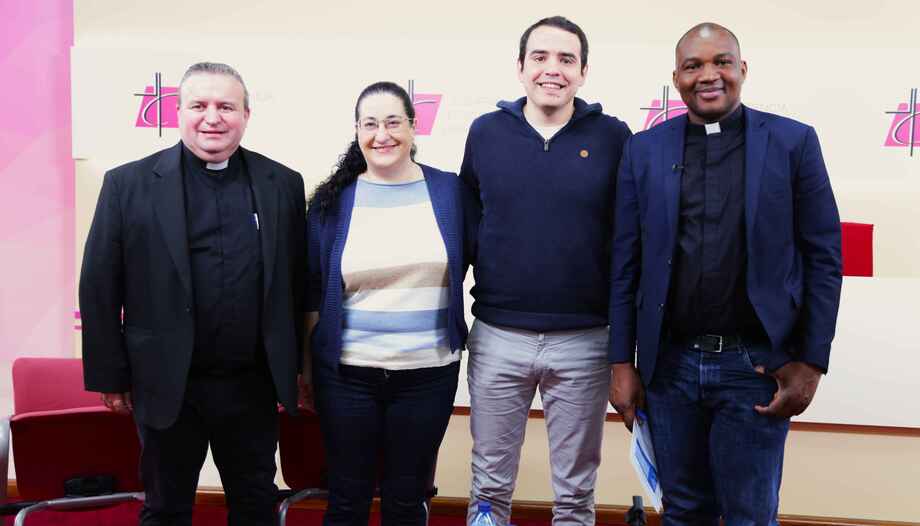
 Spain is the country with the most missionaries in the world
Spain is the country with the most missionaries in the world